- Thesis Statement Generator
- Online Summarizer
- Rewording Tool
- Topic Generator
- Essay Title Page Maker
- Conclusion Writer
- Academic Paraphraser
- Essay Writing Help
- Topic Ideas
- Writing Guides
- Useful Information

386 Health Debate Topics & Controversial Medical Issues

In the realm of health, opposing viewpoints clash like titans. Constant heated debates challenge our fundamental understanding of wellness. That is why health debate topics for high school are extremely beneficial critical thinking tools. They teach you to make the right decisions and consider your physical and mental well-being.
Below you will find a list of more than 380 controversial medical topics. Truth springs from an argument, and brainstorming ideas is a great way to develop your analytical skills. We hope our healthcare debate topics will help you create a solid position to defend.
⚕️ Health Debate Topics
- 🚑 How to Choose a Topic
🏥 Health Care Debate Topics
💊 public health debate topics.
- 💉 Controversial Medical Topics
- 🩺 Medical Ethics Topics
👩⚕️ Nursing Debate Topics
- 🚴 Health & Fitness Topics
- 🍽️ Diet & Nutrition Topics
🔗 References
- All medication is overpriced.
- Non-vegetarian food is healthy.
- Abortion: necessary help or murder?
- Is homeopathy just another placebo?
- Everyone has mental health problems.
- Vaccination is natural and healthy.
- Overdiagnosis: are we as sick as we think?
- Overworked nurses become violent toward patients.
- Euthanasia is a confirmation of medical helplessness.
- Is antibiotic misuse so harmful to the next generations?
- Do you think a universal cancer treatment will be found?
- Aggressive patients should not receive any medical care.
- Does science confirm much of health care is unnecessary?
- Does gender discrimination persist among medical professionals?
- Should doctors be responsible for all their patients who died under law and ethics?
🚑 Health Debate Topics: How to Choose a Good One
Evidence-based healthcare is a relatively new notion for the general public. Many people still believe in alternative medicine, esotery, and the power of self-suggestion. Still, most of us go to a health professional when serious health issues arise.
And while research can support or refute pseudo-scientific opinions, moral aspects go far beyond the limits of truth and lies. Most medical ethics topics for debate bring up intense disputes, irresolvable so far. For instance, correct nutrition, maternity, abortions, euthanasia, and human genome cloning raise medical controversies. Still, you can develop your position by participating in debates.
How can you select the best one from all the medical debate topics? Apply the following criteria to your short list of topic ideas.
Unnecessary Health Care Debate Topics
- Do physicians increase the number of services?
- Doctors’ income dependence on the services harms healthcare.
- Does excessive care help the forensic investigation ?
- Downsizing can help eliminate overtreatment.
- Fear of litigation is a significant cause of overtreatment.
- High costs for Medicare do not lead to better health.
- Hospital impudence is the root of the problem of overtreatment.
- Isolation from price sensitivity triggers medical costs.
- Legal peculiarities of diagnosis and treatment harm doctors.
- Most unnecessary medical procedures are not evidence-based.
- Overdiagnosis hurts the health care budget.
- Overtreatment does not benefit patients.
- Prejudice forces people to choose unnecessary procedures.
- Patients shift health responsibility to the doctor.
- Thorough procedures violate patients’ rights.
- The risk of complications increases with the overuse of care.
- The cost of insurance is the reason for overtreatment.
- Useless care does not justify the effects.
- Wasteful care accounts for about 30% of the budget.
- Why does healthcare incline patients to overtreatment?
Workplace Safety for Medical Workers Debate Topics
- Administration violates ethics laws without protecting doctors.
- Aggression and violence lead to physician decline.
- Businesses underfund injured medical staff.
- Current protections for physicians need to be improved.
- Health care and the government do not improve safety.
- HIV and hepatitis safety measures are inadequate.
- The increase in injury fatalities speaks to medical imperfections.
- Injuries are the prerogative of nurses .
- The law should side with patients on controversial issues.
- Patient aggression against nurses is on the rise.
- Patients are to blame for many medical staff injuries.
- Physician care programs are not effective.
- Post-traumatic stress is a major problem among physicians.
- Staffing shortages violate medical workers’ rights.
- The high cost of services provokes patient violence.
- The value of nurses’ and physicians’ work needs to be higher.
- The USA did not care enough about personnel during the pandemic.
- Who should be responsible for injuries in the hospital?
- Why is healthcare not taking responsibility for hazards?
- Workspace safety is the responsibility of doctors, not the hospital.
Discrimination in Health Care Debate Topics
- Women doctors are more likely to experience burnout than men.
- Gender bias prevents women from becoming doctors.
- Having children for women doctors is a career obstacle.
- Healthcare benefits form pressure on women.
- LGBT+ employees are not protected from discrimination.
- Medical degrees are a privilege for white people.
- Men have an advantage in obtaining a medical degree.
- Men’s wages in healthcare are higher than women’s.
- Patients perceive women doctors as less qualified than men.
- Pressure on female doctors leads to understaffing.
- Racial minorities get lower-paid positions in healthcare.
- Sexism violates the ethics of nursing and medicine.
- Sexual harassment in the workplace hurts women doctors.
- Stereotypes in health professions are not harmful.
- Surgical specialty is a privilege for men.
- The law is on the side of the majority.
- Stereotypes cause violations of women’s rights in medicine.
- Virtually all women nurses experience pressure at work.
- Why do patients trust male doctors more?
- Women doctors manipulate hospitals for compensation.
Health Care Prices Debate Topics
- Government intervention is necessary to control the cost of prescription drugs.
- Pharmaceutical companies are exploiting vulnerable patients for profit.
- Universal healthcare is more affordable and accessible than private healthcare.
- Medical tourism is a viable solution to high healthcare costs in one’s home country.
- Insurance companies contribute to rising healthcare prices by prioritizing profits over patient care.
- There should be reforms to promote generic competition and lower costs.
- Patients should have access to detailed information about medical procedures and their costs.
- Medical malpractice lawsuits drive up healthcare prices.
- Lobbying affects healthcare pricing policies.
- Patients are unfairly burdened with exorbitant bills for urgent medical care.
- The rising costs of medical equipment impacts overall healthcare expenses .
- Middlemen in the pharmaceutical supply chain are responsible for inflating drug prices.
- We must address the issue of crippling healthcare expenses.
- There is a need for more comprehensive insurance coverage in long-term care.
- Greater investments need to be made to reduce long-term healthcare expenses.
- There should be stricter controls to curb high costs in healthcare.
- We must ensure fair and transparent pricing for surgeries.
- The influence of healthcare monopolies contributes to higher prices.
- Co-pays place an undue financial burden on individuals seeking medical care.
- Income inequality affects access to affordable healthcare services.
Antibiotic Misuse Debate Topics
- The social and economic impact of antibiotic misuse.
- Common examples of avoidable antibiotic misuse in clinics.
- Historical instances of antibiotic regulation.
- Ways of monitoring the duration of antibiotics.
- We should limit antibiotic use in different environments.
- Antibiotics: mechanisms and organisms.
- Society and culture affect antibiotic use.
- Global action plans and awareness of antibiotic use.
- Alliance for the prudent use of antibiotics.
- Mechanisms for the development of antibiotic resistance.
- International positions on antibiotic use in farm animals.
- Beliefs about the misuse of antibiotics by parents.
- Risks associated with antibiotic overuse.
- Education level is related to the misuse of antibiotics.
- General population’s knowledge and attitudes toward antibiotics.
- Self-medication and self-prescription with antibiotics.
- Antibiotic misuse during the COVID-19 pandemic.
- How the COVID-19 era contributed to inappropriate antibiotic use.
- Indiscriminate use of antibiotics for COVID-19 treatment.
- Preventing the COVID-19 pandemic from causing an antibiotic resistance catastrophe.
- Use of antibiotics for patients with clear signs of bacterial infection.
- Prevalence of antibiotic treatment in patients with COVID-19.
- We need to develop new drugs to avoid antibiotic use.
Generic Drugs Debate Topics
- Generic drug regulations in developing countries.
- Drug regulations in the US.
- How drug regulations affect economics.
- Classification and types of medicine.
- Are generic drugs as safe and effective as branded drugs?
- Why are generics cheaper than branded drugs?
- The role of generics in sustaining healthcare systems .
- Maintaining the contribution of generics.
- Quantifying the recent contributions of generic medicines
- Should generics look different from brand drugs?
- What standards must generic medicines meet to receive FDA approval?
- Does FDA monitor the side effects of generic medicines well enough?
- FDA must ensure generics work as well as brand-name medicines.
- Should every brand-name drug have a generic drug?
- Is a biosimilar also a generic drug?
- Anatomical therapeutic chemical classification system.
- Drug safety approach in administration and nursing.
- Mechanism of action of antiviral drugs.
- The challenges of the global pharmaceutical industry.
- Are novel drugs riskier for patients than less novel drugs?
Alternative Medicine Debate Topics
- Evidence and efficacy of homeopathy.
- Publication bias and other methodological problems of homeopathy.
- Statistical hypothesis testing, P-value, and publication bias against alternative medicines.
- Systematic reviews and meta-analyses of homeopathy efficacy.
- Rediscovery of ancient treatments in the new reality.
- Prescription drug history and medieval pharmacology.
- Why is there access to unapproved drugs?
- What’s the relevance of conventional homeopathic medicine to modern medicine.
- Assessment of the human sciences contribution to homeopathy.
- Clinical evidence for homeopathy in the UK.
- Is there good scientific evidence for homeopathy?
- What is the biomedical research model?
- How does the biomedical research model work with homeopathy?
- Studying a single homeopathic remedy.
- What is the mechanism of action for homeopathy?
- Is there any proof that the clinical effects of homeopathy are only placebo effects ?
- Mechanism of action of homeopathic medicines.
- Homeopathy for COVID-19 in primary care.
- Homeopathic treatment of post-acute COVID-19 syndrome.
- Dangerous placebo use during the COVID-19 pandemic.
- Prescription drugs with complementary and alternative medicines.
- Pandemics, disinfectants, and healthcare systems.
- Environmental pollution and food production.
- Environmental impact of personal care products.
- Tackling drug-resistant infections globally.
- Drug use and its impact on culture and society.
💉 Controversial Medical Topics for Debate
Abortion debate topics.
- Abortion is morally permissible.
- Should every woman have the right to abortion?
- Is an embryo a human being?
- Does Islam advocate for the rights of an unborn child?
- Medical and social implications of abortion.
- Views on abortion in the history of Christianity.
- Artificial termination of pregnancy: moral and ethical aspects.
- Positions of supporters of abortion restrictions.
- The attitude of representatives of Judaism to abortion.
- Does abortion interrupt an already existing human life?
- The rights of an embryo and a woman.
- The US law against “killing children:” essence and specifics.
- Why do people believe pro-lifers regarding abortions?
- Pro-life and pro-choice: Who currently holds more weight?
- History of abortion bans and permissions in the US.
- Laws banning abortions in different countries.
- How does the new ban on abortions work in Poland?
- What is the right time limit for having an abortion?
- Eugenic abortions and the norms of protecting human life.
- Does abortion affect fertility?
- Termination of pregnancy: physical and mental health threats.
- Why terminate a pregnancy at a later date?
- Abortion in early and late pregnancy: the main differences.
- Impact of the pandemic on abortions in the US.
- Will paid abortions help increase fertility and reduce crime?
- When does personhood begin, and how does it impact the ethics of abortion?
- How to strike a balance between protecting women’s autonomy and fetal interests?
- Do parental consent laws for minors seeking abortions protect young individuals or infringe upon their rights?
- Access to abortion services in rural areas by women with limited options.
- What are the ethical implications of terminating pregnancies based on the gender of the fetus?
Vaccination Debate Topics
- Why is vaccination needed, and how safe is it?
- In what cases are there complications from vaccination?
- What vaccinations do adults and children actually need?
- The role of vaccinations in disease prevention.
- How did the idea of vaccination come about?
- How does vaccination really work?
- Punishment for spreading fake news about coronavirus vaccines.
- What are the contraindications of vaccination?
- Vaccination rates in different countries during the COVID-19 pandemic.
- Why are some people afraid to get vaccinated?
- Ways to avoid the spread of misinformation about vaccines.
- Procedure for registration and approval of vaccines.
- Vaccination is a reliable way to prevent infectious diseases.
- Safety and effectiveness of modern vaccines.
- Statistics on the incidence and mortality among vaccinated and unvaccinated citizens.
- Is it safe to do multiple vaccinations?
- What is the danger of refusing vaccinations?
- Pros and cons of vaccinations for children.
- Benefits and drawbacks of various COVID-19 vaccines.
- Types of vaccines against coronavirus.
ASD Debate Topics
- Who qualifies for the diagnosis of “autism”?
- Is ASD a medical condition or a natural feature?
- Is autism really a “disease of the XXI century”?
- Hypotheses of the origin and development of autism spectrum disorders.
- Factors that determine the appearance of autism in a child.
- Different perspectives on the best methods of autism treatment .
- Will there be a cure for autism spectrum disorders?
- How likely is the birth of a child with autism?
- Can autism develop with age?
- Vaccinations cause autism: is it myth or reality?
- Do students with ASD need individualized education plans?
- Early and later intervention for children with ASD: which option is more effective?
- Should vaccination for children with autism spectrum disorder be mandatory?
- Is there a genetic predisposition to ASD, or is it solely a result of environmental factors?
- Should Applied Behavior Analysis (ABA) therapy be the standard treatment for children with ASD?
- Special and general education classroom intervention is essential for students with autism spectrum disorder.
- Discuss the connection between ASD and screen time.
- Should there be more funding for research on ASD?
- Is it ethical to use animals in research for autism spectrum disorder treatments?
- Should insurance companies be required to cover the cost of ASD therapies?
- Including children with ASD in clinical trials for new treatments: pros and cons.
- Analyze the necessity of having teachers trained to work with students with autism spectrum disorder in every school.
- Should children with ASD be allowed to have service animals in school?
- Is there a gender bias in the diagnosis of autism spectrum disorder?
- Should parents of children with ASD be allowed to homeschool their child without meeting the same educational requirements as public schools?
- The mandatory identification bracelets for children with ASD: are they necessary?
- Discuss whether employers should be required to accommodate employees with autism spectrum disorder.
- Should there be separate housing or group homes for adults with ASD?
- Benefits of organizing social skill training courses for children with ASD at schools.
- Counseling and support groups for siblings of children with autism spectrum disorder: pros and cons.
Stem Cell Debate Topics
- Stem cell controversy: ethical and political points of view.
- Is hESC research the way forward for regenerative medicine?
- Is it worth giving a “green light” to hESC research ?
- Catholic church’s attitude to stem cell debate.
- The attitude of the US Congress towards stem cell research.
- The study of stem cells: the main scientific problems.
- Using stem cells to create human organs for transplantation: pros and cons.
- Should the government fund stem cell research or leave it to private companies and organizations?
- Is it ethical to use stem cells from aborted fetuses for research purposes?
- Pros and cons of allowing patients to pay for stem cell treatments that the FDA does not yet approve.
- Should there be a ban on using stem cells for cosmetic purposes, such as anti-aging treatments?
- Discuss the need for more regulations on using stem cells in research and treatment.
- Is using stem cells from a sibling or other family member to treat a sick child ethical?
- Should parents be allowed to store their child’s cord blood for future use of stem cells?
- Insurance should cover stem cell treatments: arguments for and against.
- Benefits and drawbacks of allowing scientists to use gene editing technologies on stem cells.
- Should stem cell research be prioritized over other areas of medical research?
- Is it ethical to create human-animal hybrids using stem cells for medical research?
- Using stem cell treatment to enhance athletic performance: Is it cheating?
- Discuss whether the athletes must disclose if they have received stem cell treatment.
- Allowing prisoners to donate their stem cells for research purposes: science support or exploitation?
- Should stem cell treatments be available for pets and other animals?
- The importance of limiting the amount of stem cells that can be harvested from a donor.
- Should patients be allowed to choose the gender of the stem cell donor for their treatment?
- The effectiveness and ethical implications of adult stem cells and induced pluripotent stem cells.
- Ethical and legal issues surrounding seeking unproven stem cell treatments abroad.
- Intellectual property rights in stem cell research.
- The implications and ethical concerns of altering the genetic makeup of stem cells.
- Is there a potential for tailored therapies based on an individual’s unique stem cell profile?
- Investigate the connection between stem cell research and extending the human lifespan.
- The ethical boundaries and implications of creating hybrid organisms for research purposes.
🩺 Medical Ethics Topics for Debate
- Utilitarian concept of the good and its influence on medical ethics.
- Ethical considerations and access to gender-affirming treatments, surgeries, and mental health support.
- How should healthcare providers navigate conflicts between their patients’ beliefs and medical recommendations?
- Moral aspects of euthanasia: from antiquity to the present day.
- Ethical standards in palliative care: moral aspect.
- Ethical concerns of autopsies.
- Moral and ethical issues of prenatal diagnosis.
- Status of the embryo and fetus: practices of manipulation.
- What are the limits of patient confidentiality, and when should healthcare providers breach it to protect public safety?
- Artificial insemination: Should information about the donor be disclosed?
- Moral aspects of in vitro fertilization .
- Surrogacy: who is the child’s mother?
- Assisted reproductive technologies: ethical grounds for reproduction.
- Medical genetic screening: an invaluable help or breach of privacy?
- Ethical standards of medical counseling.
- Human genetics: ethical problems of the present and the future.
- Organ transplantation from living donors: moral aspects.
- Cloning: a move against nature or promising reproduction technology?
- Ethical issues of gene therapy of germ and somatic cells.
- Testing medication on humans is a necessary evil.
- Medical experiments on living organisms: ethical aspects.
- When should terminally ill patients have access to experimental treatments?
- Organ and tissue transplantation from dead bodies: should permission be given?
- Moral problems of fetal organ and tissue transplantation.
- Is xenotransplantation an ethical practice?
- Should terminally ill patients be encouraged to become donors?
- How should limited resources be allocated to ensure equitable healthcare access for all?
- The problem of equity in the distribution of scarce resources for transplantation.
- Obligatory vaccination: a defense against deceases or intrusion into privacy?
- Mandatory disclosure of HIV status to partners: pros and cons.
- Drug addictions treatment vs. punishment.
- Discuss the general ethical principles in medical genetics.
- Confinement of psychiatric patients: is it morally justified?
- Gathering personal information during psychotherapy sessions.
- Ethical aspects of punitive psychiatry.
- Micro- and macro-level application of the equity principle in healthcare .
- What are the ethical considerations for altering the genetic makeup of humans?
- Possible complications of treatment: should all of them be named?
- Do needle exchange programs for drug users do more harm than good?
- Cardiac surgeries for older adults: ethical aspects of age.
- Circumcision of newborns without anesthetics: do newborns feel pain?
- Telling the truth to terminally ill patients: ethical aspects.
- Privacy rule: How much information can be disclosed to relatives?
- Unintended medical mistakes in nursing.
- Non-discrimination of AIDS patients in nursing practice.
- What are the requirements for obtaining valid patient consent before medical procedures or research participation?
- Can nurses refuse medical care in acute situations?
- Medical necessity versus religious conventions of patients: advice for nurses.
- Discuss the question of withholding or withdrawing life-sustaining treatment for terminally ill patients.
- Reporting injuries to the police against patients’ will.
- BSN versus ADN programs in healthcare.
- Morphine in pain management : strict regulation against the suffering of patients.
- Nurses’ long working hours and poor patient outcomes.
- Nurses’ ratios: understaffing and its impact on patients’ care
- Pandemic and its effect on nurses’ burnout.
- Resuscitation measures for terminally ill patients: nursing practice.
- Refusal to perform medical manipulations on dying patients : how is it justified?
- Explore the complexities of assisted reproductive procedures.
- Medical errors in nursing practice: admission versus concealment.
- Patient-centered care and nursing shortages: are they compatible?
- Time shortages and understaffing and their role in poor care.
- Argue about disclosing the diagnosis to relatives versus keeping silent on patients’ demands.
- Can nurses advise patients in medical settings?
- Unduly procedures of medical manipulations and staff shortages.
- Discuss the compatibility of practice and theory in nursing.
- The role of nurses in resuscitation measures: the price of mistakes.
- Doctors’ prescription and the ethics of their blind implementation.
- Nurses in palliative care: compassion versus professional duty.
- Should nurses explain the origins of the disease to patients?
- Alleviating patients’ distress through lying: moral choice.
- Ways of breaking bad news to patients’ relatives.
🚴 Debate Topics on Health & Fitness
- Professional sports are harmful to athletes’ health.
- Fitness as a health science.
- Amateur sports are safer than professional sports.
- The possibility of replacing the diet with physical activity.
- Is it ethical to use performance-enhancing drugs in professional sports?
- Should college athletes be paid for their participation in sports?
- Physical education classes for all students: are they necessary?
- Do schools prioritize winning in sports over the well-being of student-athletes?
- Discuss whether student-athletes should be required to maintain a certain GPA to participate in sports.
- Should schools be held liable for injuries sustained by student-athletes while participating in school-sponsored sports?
- Schools and sports teams should be required to provide mental health resources for student-athletes: arguments for and against.
- Is cheerleading a sport or an activity?
- Will banning contact sports, such as football, help to reduce the risk of concussions and other related injuries?
- Should parents be allowed to sign waivers to exempt their children from wearing protective gear while playing sports?
- Analyze the need for sports teams to have trained medical personnel present at all practices and games.
- Is it ethical for professional sports leagues to have a salary cap, or should players be able to earn as much as they can negotiate?
- The importance of providing equal resources and opportunities to female athletes.
- Discuss whether physical fitness should be required for high-level government officials, such as the President of the United States.
- Should there be age restrictions for children participating in certain sports, such as boxing and mixed martial arts?
- Pros and cons of recruiting young athletes from other countries and bringing them to the US to play professionally.
- Should sports teams be required to disclose the long-term health risks associated with playing certain sports, such as football and hockey?
- The necessity to limit the number of hours per week that high school and college athletes can practice and participate in games.
- Discuss the importance of regulating the advertisements and sponsorships that sports teams and leagues accept.
- Should professional athletes be required to speak publicly about social issues and current events, or is their role limited to entertainment?
️🍽 Health Debate Topics on Diet & Nutrition
- Relationship between healthy eating and physical fitness.
- What’s the effect of calorie intake on human endurance?
- Discuss the impact of vegetarianism on the likelihood of injury.
- Types of diets for diabetes.
- Dependence of mental health on one’s diet.
- Measurement of cholesterol levels in people with different diets.
- The level of public health depends on fast food availability.
- Is calorie counting important in a healthy diet?
- The consequences of frequent junk food consumption.
- The importance of mindful eating.
- Consequences of high carbohydrate intake.
- One’s skin condition depends on one’s nutrition.
- Causes of stomach problems.
- The influence of metabolism on the human physique.
- Determining factors of endurance in overweight people.
- New methods of developing diets for weight loss.
- Overtreatment in the United States: PMC
- Racism and Discrimination in Health Care: Providers and Patients: Harvard University
- Gender Bias in Healthcare: Examples and Consequences: Medical News Today
- Vaccines and Immunization: World Health Organization
- What Is Autism Spectrum Disorder?: CDC
- Complementary and Alternative Medicine (CAM): NCI
- The World’s Abortion Laws: Center for Reproductive Rights
- The Stem Cell Debate: Is It Over?: University of Utah
- Debate Ethics of Embryo Models from Stem Cells: Nature Journal
- How Does Diet Impact Health?: University of Minnesota
- Ethics and Human Rights in Nursing: American Nurses Association
- Fitness: What It Is, Health Benefits, and Getting Started: Everyday Health
- Workout Injuries: Prevention and Treatment: WebMD
- Antibiotics: Are You Misusing Them?: Mayo Clinic
- The Danger of Antibiotic Overuse (for Parents): KidsHealth
- Generic Drugs: Questions & Answers: Food and Drug Administration
- What Is Homeopathy and Does It Work?: Cleveland Clinic

Affiliate 💸
Get started free
Research Paper
99 of the Most Controversial Research Paper Topics (Controversial Yet Interesting)
Ignite debates with thought-provoking content! Explore controversial research paper topics for compelling discussions and academic exploration.
Feb 20, 2024

Dive into a world of contentious debates and thought-provoking discussions with a deep look at controversial research paper topics. From exploring ethical dilemmas to dissecting societal taboos, this blog will navigate the intricate landscape of controversial subjects, shedding light on research paper structure while captivating your intellectual curiosity. Join us as we unravel the complexities of these contentious issues and challenge the norms of traditional research. Let's embark on a journey of exploration and critical analysis together.
Table of Contents
Why controversial research paper topics make the best research papers, how to effectively structure a controversial research paper, supercharge your researching ability with otio — try otio for free today.

1. Stimulates Critical Thinking and Debates
Controversial research paper topics have the unique ability to spark intense debates and discussions among researchers, academics, and the general public. These topics often challenge preconceived notions and push individuals to think critically, analyze different perspectives, and defend their own viewpoints. The intellectual stimulation that arises from debating controversial issues can lead to groundbreaking insights and innovative solutions.
2. Encourages Exploration of Taboo Subjects
Controversial research paper topics often touch upon taboo subjects that are considered sensitive or off-limits in mainstream discourse. By delving into these contentious areas, researchers have the opportunity to explore uncharted territories , challenge societal norms, and shed light on marginalized voices. This exploration can lead to a deeper understanding of complex issues and contribute to social progress and change.
3. Drives Innovation and Creativity
The inherent controversy surrounding these research paper topics pushes researchers to think outside the box, question traditional beliefs, and come up with novel approaches to address challenging issues. This drive for innovation and creativity can lead to the development of groundbreaking theories, methodologies, and solutions that have the potential to revolutionize the field of study and have a lasting impact on society.
4. Captures Public Attention and Interest
Controversial research paper topics have a certain allure that captures the attention and interest of a wide audience. These topics often deal with pressing social, political, and ethical issues that resonate with people on a personal level. As a result, research papers on controversial topics have the potential to reach a larger audience, generate public discourse, and raise awareness about important issues that might otherwise be overlooked.
5. Fosters Resilience and Intellectual Courage
Engaging with controversial research paper topics requires a certain level of resilience and intellectual courage. Researchers must be willing to confront uncomfortable truths, challenge prevailing beliefs, and navigate potential backlash or criticism. By tackling controversial subjects head-on, researchers can develop a greater sense of resilience, strengthen their analytical skills, and cultivate the intellectual courage necessary to push boundaries and pursue innovative research agendas.
Related Reading
• Research Paper Thesis Examples • Best Research Paper Topics • How To Write A Research Paper Outline • Research Topics For High School • History Research Paper Topics • Examples Of Research Topics • Us History Research Paper Topics • How To Write A Research Report • Topics For History Research Paper • How To Choose A Research Topic • How To Write A Research Paper Fast • English Research Paper Topics • Tips For Writing A Research Paper • Best Topics For Research Paper • Scientific Research Paper Topics • Research Paper Ideas For English • What To Include In Introduction Of Research Paper • Research Paper Draft

1. Genetic modification of embryos: Ethical implications and future considerations
Exploring the ethical dilemmas surrounding the genetic modification of embryos and the potential impact on future generations.
2. Mandatory vaccinations: Balancing public health and individual rights
Investigating the debate on mandatory vaccinations to prevent the spread of contagious diseases while respecting personal freedoms.
3. Climate change denial: The science, the skeptics, and the consequences
Examining the arguments of climate change deniers, the scientific consensus, and the potential consequences of inaction.
4. Artificial intelligence: Enhancing society or posing a threat to humanity?
Delving into the benefits and risks of artificial intelligence in various aspects of society and its potential impact on humanity.
5. Legalizing euthanasia: Compassion or moral dilemma?
Analyzing the arguments for and against legalizing euthanasia, considering the ethical and moral implications.
6. Gun control: Striking a balance between safety and Second Amendment rights
Exploring the contentious issue of gun control, addressing public safety concerns while upholding constitutional rights.
7. Animal testing: Scientific necessity or ethical concern?
Examining the use of animals in scientific research, weighing the benefits of medical advancement against animal welfare concerns.
8. Capital punishment: Just retribution or inhumane practice?
Discussing the arguments surrounding the death penalty, including its deterrent effect, justice for victims, and ethical considerations.
9. Nuclear energy: Sustainable solution or environmental risk?
Investigating the role of nuclear energy in the quest for sustainable power sources and its potential environmental impact.
10. Gender identity: Biological reality vs. self-perception
Exploring the complexity of gender identity, including biological, social, and personal factors that influence one's sense of self.
11. Online privacy: Balancing security with individual freedom
Analyzing the tension between protecting online privacy and the need for security measures in the digital age.
12. Legalization of prostitution: Empowerment or exploitation?
Examining the arguments for and against legalizing prostitution, considering the impact on sex workers and society.
13. Cloning: Scientific advancement or ethical dilemma?
Delving into the science and ethics of cloning, including its potential benefits and the moral implications of cloning humans.
14. Cultural appropriation: Appreciation or exploitation?
Discussing the fine line between cultural appreciation and appropriation, considering power dynamics and historical contexts.
15. Universal basic income: Addressing inequality or encouraging dependency?
Exploring the concept of universal basic income as a solution to economic disparities and its potential societal implications.
16. Genetically modified organisms (GMOs): Feeding the world or endangering health?
Investigating the controversy surrounding GMOs, including their role in food production, safety concerns, and environmental impact.
17. Social media influence: Empowering or manipulating society?
Analyzing the influence of social media on individuals and society, including its role in shaping opinions and behaviors.
18. Cyberbullying: The dark side of online interactions
Exploring the prevalence and impact of cyberbullying on mental health and well-being, and strategies for prevention.
19. Art censorship: Preserving morals or stifling creativity?
Discussing the debate on art censorship, considering cultural sensitivities, freedom of expression, and artistic integrity.
20. The obesity epidemic: Personal responsibility or societal problem?
Examining the factors contributing to the obesity epidemic, including lifestyle choices, food environment, and public health policies.
21. Renewable energy sources: Transitioning towards a sustainable future
Investigating the potential of renewable energy sources to reduce carbon emissions and combat climate change.
22. Racial profiling: Law enforcement tool or civil rights violation?
Analyzing the practice of racial profiling, its impact on marginalized communities, and efforts to address systemic bias.
23. The privacy vs. security debate: Striking a balance in the digital age
Exploring the trade-offs between privacy rights and national security concerns, especially in the context of technological advancements.
24. The future of work: Automation, AI, and the changing labor landscape
Discussing the impact of automation and artificial intelligence on the workforce, including job displacement and skills training.
25. Body modification: Self-expression or societal taboo?
Examining the motivations behind body modifications, including tattoos, piercings, and cosmetic surgeries, and societal perceptions.
26. Educational inequality: Addressing disparities in access and quality
Investigating the factors contributing to educational inequality, including funding disparities, systemic barriers, and solutions for reform.
27. Medical marijuana: Healing herb or gateway drug?
Exploring the therapeutic potential of medical marijuana , its legal status, and the debate on its recreational use.
28. Sustainable agriculture: Balancing productivity with environmental stewardship
Discussing sustainable farming practices that promote food security while minimizing environmental impact and preserving natural resources.
29. Cybersecurity threats: Protecting data in the digital age
Analyzing the evolving landscape of cybersecurity threats, including hacking, identity theft, and data breaches, and strategies for protection.
30. Animal rights activism: Advocacy for ethical treatment or extremist ideology?
Examining the motivations and tactics of animal rights activists, legal protections for animals, and ethical considerations in animal welfare.
31. The role of media in shaping public opinion: Informative tool or propaganda machine?
Discussing the influence of media outlets on public perception, including bias, misinformation, and the importance of critical thinking.
32. Immigration policies: National security or human rights concern?
Exploring the complexities of immigration policies , including border control, refugee rights, and the socio-economic impact of migration.
33. Gender pay gap: Workplace inequality and the fight for equal pay
Investigating the disparities in wages based on gender, factors contributing to the gender pay gap, and strategies for achieving pay equity.
34. Mental health stigma: Breaking the silence and promoting understanding
Discussing the stigma surrounding mental health issues, misconceptions, and the importance of destigmatizing mental illness.
35. Space exploration: Inspiring innovation or wasteful expenditure?
Exploring the benefits of space exploration in scientific advancement, technological innovation, and the ethical considerations of space travel.
36. Internet censorship: Protecting society or stifling free speech?
Analyzing the implications of internet censorship on freedom of expression, access to information, and government control of online content.
37. Cultural diversity in the workplace: Promoting inclusivity or tokenism?
Examining the importance of cultural diversity in the workplace, challenges faced by diverse employees, and best practices for fostering inclusivity.
38. Autonomous vehicles: Revolutionizing transportation or safety risk?
Discussing the potential of self-driving cars to improve road safety, reduce traffic congestion, and ethical considerations in autonomous vehicle technology.
39. Gender stereotypes in media: Reinforcing norms or challenging perceptions?
Investigating the portrayal of gender stereotypes in media, its impact on society, and efforts to promote gender equality in media representation.
40. Food insecurity: Hunger in a world of abundance
Exploring the root causes of food insecurity, including poverty, conflict, and climate change, and solutions to address global hunger.
41. The ethics of whistleblowing: Exposing truth or breaching trust?
Discussing the moral dilemmas faced by whistleblowers, the impact of whistleblowing on organizations, and legal protections for whistleblowers.
42. Alternative medicine: Holistic healing or pseudoscience?
Examining the efficacy of alternative medicine practices, including acupuncture, herbal remedies, and homeopathy, and the debate on their scientific basis.
43. Body image and the media: Unrealistic standards and mental health
Analyzing the influence of media on body image perceptions, the prevalence of body dysmorphia, and strategies for promoting positive self-esteem.
44. Plastic pollution: A global environmental crisis
Investigating the impact of plastic pollution on marine ecosystems, human health, and efforts to reduce plastic waste through recycling and regulation.
45. Animal testing in cosmetics: Beauty at the cost of cruelty?
Discussing the controversy surrounding animal testing in the cosmetics industry, ethical alternatives, and consumer awareness of cruelty-free products.
46. Nuclear disarmament: A world free of nuclear weapons?
Exploring the challenges and benefits of nuclear disarmament, global security implications, and diplomatic efforts towards nuclear non-proliferation.
47. Climate engineering: Geoengineering solutions for climate change
Investigating the feasibility and ethical implications of climate engineering technologies, such as solar radiation management and carbon capture.
48. The impact of social media on mental health: Connection or isolation?
Discussing the effects of social media on mental well-being, including cyberbullying, FOMO, and strategies for promoting positive online interactions.
49. Water scarcity: Managing a precious resource
Exploring the global water crisis, sustainable water management practices, and the socio-economic impact of water scarcity on communities.
50. Universal healthcare: Ensuring access to healthcare for all
Discussing the benefits and challenges of implementing universal healthcare systems, including funding, quality of care, and equity in healthcare access.
51. Sweatshop labor: Exploitation in the global supply chain
Analyzing the ethical issues of sweatshop labor, corporate responsibility, and efforts to improve working conditions and wages for garment workers.
52. The impact of globalization on culture: Homogenization or diversity?
Examining the cultural consequences of globalization, including the spread of Western values, cultural exchange, and the preservation of cultural heritage.
53. Genocide prevention: Learning from history to protect human rights
Discussing the role of international law , humanitarian intervention, and early warning systems in preventing genocides and mass atrocities.
54. Data privacy in the age of surveillance: Protecting personal information
Exploring the implications of data collection and surveillance on privacy rights, data breaches, and the need for data protection regulations.
55. Drug legalization: Addressing the war on drugs
Investigating the arguments for legalizing drugs, including marijuana, psychedelics, and the impact of drug policies on public health and criminal justice.
56. Artificial intelligence in warfare: Autonomous weapons and ethical concerns
Discussing the use of AI in military technology, including autonomous drones, cyber warfare, and the ethical considerations of AI in armed conflict.
57. Police brutality: Accountability and reform in law enforcement
Analyzing cases of police violence, racial bias in policing, and efforts to promote accountability, community policing, and reforms in law enforcement.
58. The ethics of animal experimentation: Balancing scientific progress and animal welfare
Examining the ethical considerations of using animals in research, alternatives to animal testing, and regulations to ensure humane treatment.
59. Bioethics in Healthcare: Navigating moral dilemmas in medical practice
Discussing ethical issues in healthcare, including patient autonomy, end-of-life care, genetic testing, and reproductive technologies.
60. GMO labeling: Informed consumer choice or unnecessary regulation?
Exploring the debate on labeling GMOs in food products, consumer rights to know, and the impact of GMO labeling on food industry practices.
61. Online hate speech: The limits of free expression
Investigating the rise of online hate speech, its impact on marginalized groups, legal implications, and strategies to combat hate speech online.
62. The future of democracy: Challenges and opportunities in a digital age
Discussing the impact of technology on democracy, including disinformation, social media influence, electoral integrity, and civic engagement.
63. Cyber warfare: The new frontier of conflict
Analyzing the threats posed by cyber warfare, including hacking, ransomware, and state-sponsored cyber attacks, and strategies for cybersecurity defense.
64. Workplace discrimination: Breaking barriers and promoting diversity
Examining the prevalence of workplace discrimination based on race, gender, age, and sexual orientation, and efforts to foster inclusive work environments.
65. The opioid epidemic: Addressing addiction and overdose crisis
Discussing the factors contributing to the opioid crisis, including overprescription, illicit drug trafficking, and strategies for prevention and treatment.
66. Surveillance capitalism: The commodification of personal data
Exploring the business model of surveillance capitalism, data collection practices by tech companies, and the implications for consumer privacy.
67. Online dating: Changing norms and social interactions
Investigating the impact of online dating on relationships, social dynamics, and the evolution of dating norms in the digital age.
68. Racial disparities in healthcare: Addressing inequities in access and treatment
Examining the racial inequalities in healthcare outcomes, disparities in access to care, and strategies to promote health equity among diverse populations.
69. The impact of technology on jobs: Automation and the future of work
Discussing the effects of automation and AI on the labor market, job displacement, reskilling programs, and the need for workforce adaptation.
70. Domestic violence: Breaking the cycle of abuse
Analyzing the prevalence of domestic violence, its impact on victims and families, and interventions for prevention, support, and legal protection.
71. The dark web: Unveiling the hidden layers of the internet
Exploring the anonymous and illicit activities on the dark web , including illegal markets, cybercrime, and the challenges of law enforcement in cyberspace.
72. Cultural heritage preservation: Safeguarding the past for the future
Investigating efforts to protect cultural heritage sites, artifacts, and traditions from destruction, looting, and the impact of urban development.
73. Mass incarceration: Reforms in the criminal justice system
Examining the causes and consequences of mass incarceration, racial disparities in sentencing, and initiatives for criminal justice reform and rehabilitation.
74. Genetic privacy: Regulating DNA data and bioinformatics
Discussing the privacy concerns related to genetic testing, DNA databases, and the ethical implications of sharing personal genetic information.
75. The impact of social media influencers: Marketing or manipulation?
Analyzing the influence of social media influencers on consumer behavior, advertising regulations, and the authenticity of influencer marketing.
76. Access to education for refugee children: Overcoming barriers to learning
Exploring the challenges faced by refugee children in accessing quality education, barriers to integration, and initiatives for refugee education support.
77. Workplace surveillance: Balancing security with employee privacy
Investigating the use of surveillance technologies in the workplace, employee monitoring practices, and the legal and ethical implications of workplace surveillance.
78. Cryptocurrency regulation: Navigating the digital financial landscape
Exploring the challenges of regulating cryptocurrencies, blockchain technology, and the implications for financial transactions, security, and legal frameworks.
79. Mental health treatment stigma: Breaking down barriers to care
Discussing the stigma surrounding mental health treatment, access to mental healthcare services, and destigmatization efforts to promote help-seeking behaviors.
80. The impact of social media on politics: Influence and disinformation
Analyzing the role of social media in political discourse, election campaigns, misinformation, and the regulation of political advertising online.
81. Human trafficking: Combating modern-day slavery
Examining the global issue of human trafficking, including sex trafficking, forced labor, and efforts to prevent trafficking, prosecute perpetrators, and protect victims.
82. Biohacking: DIY biology and ethical considerations
Investigating the biohacking movement, including DIY genetic engineering, body modifications, and the ethical implications of citizen science in biotechnology.
83. Gender-based violence: Addressing inequalities and promoting gender equality
Discussing the prevalence of gender-based violence, including domestic violence, sexual assault, and efforts to empower survivors, raise awareness, and enact legal protections.
84. The digital divide: Access to technology and internet connectivity
Exploring the disparities in access to technology, digital skills, and internet connectivity, and initiatives to bridge the digital divide and promote digital literacy.
85. The impact of social media on youth: Peer pressure and mental health
Analyzing the influence of social media on adolescent behavior, mental well-being, body image perceptions, and strategies for promoting positive online habits.
86. Workplace diversity programs: Fostering inclusion and equity
Examining the effectiveness of workplace diversity initiatives, including diversity training, recruitment practices, and the promotion of inclusive work environments.
87. Child labor: Exploitation and human rights violations
Discussing the prevalence of child labor, its impact on education, health, and development, and efforts to eliminate child labor through legislation and advocacy.
88. The ethics of brain-computer interfaces: Enhancing cognition or privacy concerns
Investigating the ethical considerations of brain-computer interface technology, its potential applications in healthcare, communication, and the implications for privacy and autonomy.
89. Social inequality in healthcare: Addressing disparities in access and outcomes
Examining the socio-economic factors contributing to healthcare inequality, including insurance coverage, healthcare affordability, and the impact on health disparities.
90. The future of privacy in a surveillance society: Protecting personal data
Exploring the challenges of protecting privacy rights in a surveillance society, digital tracking, data breaches, and the need for privacy regulations.
91. The impact of climate change on vulnerable communities: Environmental justice and adaptation
Analyzing the disproportionate impact of climate change on marginalized communities, including low-income neighborhoods, indigenous populations, and strategies for climate resilience and adaptation.
92. Social media addiction: The risks of excessive screen time
Investigating the addictive nature of social media, its impact on mental health, relationships, and strategies for digital detox and healthy technology use.
93. Sustainable fashion: Ethical practices and environmental impact
Discussing the environmental and social implications of fast fashion, sustainable fashion brands, ethical sourcing, and the circular economy in the fashion industry.
94. Workplace harassment: Creating a culture of respect and accountability
Examining the prevalence of workplace harassment , including sexual harassment, bullying, and efforts to prevent workplace misconduct, promote reporting mechanisms, and support victims.
95. The impact of artificial intelligence on creative industries: Innovation or job displacement
Analyzing the role of AI in creative fields, including art, music, writing, and the potential impact on creative expression, copyright laws, and employment in the arts.
96. Cultural assimilation vs. cultural preservation: Identity and diversity
Exploring the tensions between assimilation and preservation of cultural identities, traditions, languages, and the impact of globalization on cultural diversity.
97. Youth activism: Empowering the next generation of changemakers
Investigating the rise of youth-led movements, social activism among young people, and the impact of youth activism on policy change, social justice, and civic engagement.
98. Smart cities: Urban innovation and sustainable development
Discussing the concept of smart cities, IoT technology, data-driven urban planning, and the potential of smart infrastructure to enhance efficiency, safety, and quality of life in urban areas.
99. Workplace automation: Redefining job roles and skills
Analyzing the impact of automation on the workforce, job displacement, upskilling opportunities, and the future of work in an increasingly automated economy.
1. Choosing a Provocative Topic
Select a topic that is relevant, timely, and sparks debate. Addressing current societal issues or challenging conventional beliefs can make your research paper stand out and generate interest.
2. Thorough Background Research
Before diving into writing, ensure you have a comprehensive understanding of the topic. Familiarize yourself with various perspectives, existing studies, and key arguments to strengthen the credibility of your paper.
3. Compelling Introduction
Hook your readers from the start with a captivating introduction. Clearly define the issue at hand, present the significance of your research, and pose thought-provoking questions to engage your audience.
4. Structured and Logical Organization
Divide your paper into clear sections such as introduction, literature review, methodology, results, discussion, and conclusion. This structure will guide the reader through your arguments and findings in a coherent manner.
5. Incorporating Diverse Viewpoints
Acknowledge different perspectives on the controversial topic and present a balanced analysis . Address counterarguments respectfully while reinforcing your own stance with strong evidence and logical reasoning.
6. Data-driven Analysis
Support your claims with reliable data, statistics, case studies, and scholarly references. Using empirical evidence will enhance the credibility of your research paper and validate your arguments.

7. Engaging Writing Style
Write in a clear, concise, and engaging manner. Avoid jargon and complex language that may alienate readers. Use illustrative examples, anecdotes, and relatable scenarios to make your paper more accessible and impactful.
8. Ethical Considerations
Ensure that your research is conducted ethically and respects the rights and dignity of all individuals involved. Address any potential biases or conflicts of interest transparently to maintain the integrity of your study.
9. Impactful Conclusion
End your paper with a compelling conclusion that summarizes key findings, emphasizes the significance of your research, and suggests potential implications for the field. Leave the reader with lingering thoughts and a call to action.
10. Peer Review and Revision
Seek feedback from peers, mentors, or professors to refine your research paper. Be open to constructive criticism and revise your work diligently to enhance clarity, coherence, and overall quality. By following these guidelines, you can effectively structure a controversial research paper that captures the reader's attention, stimulates critical thinking, and contributes meaningfully to the academic discourse.
• Research Paper Outline Template • Research Paper Introduction Example • Research Paper Conclusion Example • How Long Should A Research Paper Be • How To Quickly Write A Research Paper • Tips For Writing Research Papers • 7 Steps In Writing A Research Paper
In controversial research paper topics, the landscape is vast and ever-evolving. Scholars, students, and knowledge workers frequently find themselves engulfed in a deluge of information, struggling to sift through the abundance of data to extract meaningful insights. This dilemma is exacerbated by the proliferation of content creation, where anyone can contribute to the pool of knowledge with a mere click. Otio emerges as a beacon of light in this chaos, offering a streamlined solution to the pervasive issue of content overload. By providing a centralized AI-native workspace for researchers, Otio revolutionizes the way individuals engage with information. Let's delve into the key features of Otio that make it a game-changer in the realm of research and writing.
Collecting Diverse Data Sources
One of the primary challenges faced by researchers is the task of gathering information from a multitude of sources, ranging from traditional articles and books to tweets and YouTube videos. Otio simplifies this process by allowing users to collect data seamlessly from a wide array of sources. Whether it's a thought-provoking tweet or an in-depth research paper, Otio enables users to compile all relevant materials in one cohesive platform.
Extracting Key Takeaways with AI-generated Notes
Once the data is amassed, the next hurdle is distilling key insights from the wealth of information. Otio's AI-generated notes feature proves to be invaluable in this regard. By automatically generating detailed notes on bookmarks, PDFs, videos, and more, Otio empowers users to extract essential takeaways with ease. This not only saves time but also ensures that crucial information does not get lost in the sea of data.
Engaging in Source-grounded Q&A Chat
In the pursuit of knowledge, clarity is key. Otio enhances the research process by offering a unique source-grounded Q&A chat feature. This functionality enables users to engage in dynamic conversations about individual links or entire knowledge bases, fostering a collaborative and insightful research environment. Just like conversing with a knowledgeable peer, Otio's chat capabilities facilitate a deeper understanding of the material at hand.
Accelerating the Writing Process with AI Assistance
Crafting coherent and compelling research papers or essays is often a laborious task. Otio streamlines this process by providing AI-assisted writing functionalities. From generating draft outputs based on collected sources to refining the writing style, Otio acts as a supportive writing partner for researchers, helping them transition from a mere reading list to a polished first draft in record time.
Embracing the Future of Research and Writing with Otio
In a world inundated with information, Otio stands out as a beacon of efficiency and innovation. By amalgamating cutting-edge AI technologies with user-friendly features, Otio redefines the research and writing experience for knowledge workers, researchers, and students alike. Embrace the future of research and writing—let Otio be your AI research and writing partner . Try Otio for free today and revolutionize your workflow.
• Ai Research Paper Generator • Ai Generated Research Paper • Ai Research Tools

May 24, 2024
Second Brain Method
What Is The Second Brain Method? How To Build One

May 23, 2024
How The Second Brain Study Technique Helps You Study Better
Join over 25,000 researchers changing the way they read & write

Chrome Extension
© 2023 Frontdoor Labs Ltd.
Terms of Service
Privacy Policy
Refund Policy
Join thousands of other scholars and researchers
Try Otio Free
Explore the Best Medical and Health Research Topics Ideas
Table of contents
- 1 How to Choose Medical Research Paper Topics
- 2 New Medical Research Paper Topics
- 3 Medical Research Topics for College Students
- 4 Controversial Medical Topics for Research Paper
- 5 Health Research Topics
- 6 Medicine Research Topics
- 7 Healthcare Research Topics
- 8 Public Health Research Topics
- 9 Mental Health Research Paper Topics
- 10 Anatomy Research Topics
- 11 Biomedical Research Topics
- 12 Bioethics Research Topics
- 13 Cancer Research Topics
- 14 Clinical Research Topics
- 15 Critical Care Research Topics
- 16 Pediatric Research Topics
- 17 Dental Research Topics Ideas
- 18 Dermatology Research Topics
- 19 Primary Care Research Topics
- 20 Pharmaceutical Research Topics
- 21 Medical Anthropology Research Topics
- 22 Paramedic Research Paper Topics
- 23 Surgery Research Topics
- 24 Radiology Research Paper Topics
- 25 Anatomy and Physiology Research Paper Topics
- 26 Healthcare Management Research Paper Topics
- 27 Medical Ethics Research Paper Topics
- 28 Conclusion
In such a complex and broad field as medicine, writing an original and compelling research paper is a daunting task. From investigating public care concerns to cancer treatment studies, each student decides where his interests lie. Our goal is to help students find new angles to study and focus on relevant topics. With our resources, you can write an engaging and rigorous paper.
How to Choose Medical Research Paper Topics
Choosing good research paper topics is often more challenging than the writing process itself. You need to select a captivating subject matter that will grab the reader’s attention, showcase your knowledge of a specific field, help you progress in your studies, and perhaps even inspire future research.
To accomplish that, you need to start with brainstorming, followed by thorough research. Here are some great tips to follow:
- Pick an interesting topic – The key is to pick something that you find interesting, and yet make sure it’s not too general or too narrow. It should allow you to delve deep into the subject matter and show that you’re a professional who is ready to take on a challenge when it comes to your chosen field of medicine.
- Narrow down your focus – Once you have a list of potential topics, sift through recent medical research papers to get up-to-date with the latest trends, developments, and issues in medicine and healthcare. Check out textbooks, news articles, and other relevant sources for more information related to your potential topics. If a particular condition or disease interests you (perhaps something that drew you to a career in medicine), there’s your cue for narrowing down your topic.
- Pinpoint the “why,” “how,” and “what” – Whether you are looking into nutrition research paper topics , controversial medical topics, nursing research topics, or anything in-between, ask yourself why each of them is important. How could they contribute to the available medical studies, if any? What new information could they bring to improve the future of medicine? Asking these questions will help you pick the right medical research paper topic that suits you and helps you move forward and reach your aspirations.
To help you on that quest, we’ve compiled a list of topics that you could use or that might inspire you to come up with something unique. Let’s dive in.
New Medical Research Paper Topics
Are you interested in the newest and most interesting developments in medicine? We put hours of effort into identifying the current trends in health research so we could provide you with these examples of topics. Whether you hire a research paper writing service for students or write a paper by yourself, you need an appealing topic to focus on.
- Epidemics versus pandemics
- Child health care
- Medical humanitarian missions in the developing world
- Homoeopathic medicines – the placebo effect
- Virus infections – causes and treatment
- Is medical research on animals ethical
- Vaccination – dangers versus benefits
- Artificial tissues and organs
- Rare genetic diseases
- Brain injuries
Medical Research Topics for College Students
You don’t know where to start with your medical research paper? There are so many things you could write about that the greatest challenge is to narrow them down. This is why we decided to help.
- Antibiotics treatments
- Chronic diseases
- Palliative treatment
- Battling Alzheimer’s disease
- How modern lifestyle affects public health
- Professional diseases
- Sleep disorders
- Changes in physical and mental health due to aging
- Eating disorders
- Terminal diseases
Controversial Medical Topics for Research Paper
In healthcare, new discoveries can change people’s lives in the blink of an eye. This is also the reason why there are so many controversial topics in medicine, which involve anything from religion to ethics or social responsibility. Read on to discover our top controversial research topics.
- Implementing food standards
- Gluten allergy
- Assisted suicide for terminal patients
- Testing vaccines on animals – ethical concerns
- Moral responsibilities regarding cloning
- Marijuana legalization for medical purposes
- Abortion – medical approaches
- Vegan diets – benefits and dangers
- Increased life expectancy: a burden on the healthcare system?
- Circumcision effects
Health Research Topics
Students conducting health research struggle with finding good ideas related to their medical interests. If you want to write interesting college papers, you can select a good topic for our list.
- How environmental changes affect human health
- Deafness: communication disorders
- Household air pollution
- Diabetes – a public danger
- Coronaviruses
- Oral health assessment
- Tobacco and alcohol control
- Diseases caused by lack of physical exercise
- How urban pollution affects respiratory diseases
- Healthy diets
Medicine Research Topics
Regardless of the requirements in your research assignment, you can write about something that is both engaging and useful in your future career. Choose a topic from below.
- Causes for the increasing cancer cases
- Insulin resistance
- How terrorism affects mental health
- AIDS/HIV – latest developments
- Treating pregnant women versus non-pregnant women
- Latest innovations in medical instruments
- Genetic engineering
- Successful treatment of mental diseases
- Is autism a disease
- Natural coma versus artificial coma
Healthcare Research Topics
Healthcare research includes political and social aspects, besides medical. For college students who want to explore how medicine is affected by society’s values or principles, we provide examples of topics for papers. Select yours from the list below.
- Government investment in healthcare services in the EU versus the USA
- Inequalities in healthcare assistance and services
- Electronic health records systems – pros and cons
- Can asylums treat mental issues
- Health care for prison inmates
- Equipment for improving treatment of AIDS
- Correlation between economic development and health care services across countries
- Impact of smoking on organs
- Heart attacks – causes and effects
- Breast cancer – recent developments
Public Health Research Topics
For current examples of public health topics, browse our list. We provide only original, researchable examples for which you can easily find supporting data and evidence.
- Public versus private hospitals
- Health care professionals – management principles
- Surgery failures – who is responsible
- What legal responsibilities has the hospital administration
- Patient service quality in public versus private hospitals
- What benefits national health care systems have
- Estimated costs of cancer treatments
- Public health in developing countries
- Banning tobacco ads – importance for public health
- Government solutions to the anti-vaccine’s movement
Mental Health Research Paper Topics
Mental health is one of the most complex areas of medicine, where things are never as clear as with other medical issues. This increases the research potential of the field with plenty of topics left for debate.
- Causes of anxiety disorders
- Bulimia versus anorexia
- Childhood trauma
- Mental health public policies
- Postpartum Depression
- Posttraumatic Stress Disorder
- Seasonal Affective Disorder
- Schizophrenia
Anatomy Research Topics
Anatomy covers everything about the human body and how it works. If you find that intriguing and want to pay for medical research paper, start by selecting a topic.
- Chemotherapy: how it affects the body
- Thyroid glands – functions in the body
- Human endocrine system
- Heart diseases
- How does the human muscular system develop
- Lymphatic system – importance
- Investigating genetic diseases
- Digestive system
Biomedical Research Topics
Biology and medicine often work together. For the newest changes in the biomedical field, check our topics.
- Alzheimer’s disease – paths for treatment
- Vaccines and drug development in the treatment of Ebola
- Antibiotic resistance
- Biological effects caused by aging
- Air pollution effects on health
- Infectious disease past versus present
- Regenerative medicine
- Biomedical diagnostics
- Biomedical technology
Bioethics Research Topics
A controversial area of medicine, bioethics is where you get the chance to add personal input to a research topic and come up with new insights. You could consider these subjects.
- Organ donation
- Alternative or complementary medicine
- Assisted suicide or the right to die
- Artificial insemination or surrogacy
- Chemical and biological warfare
- Contraception
- Environmental bioethics
- In Vitro fertilization
Cancer Research Topics
Are you writing a paper related to cancer causes, diagnosis, treatment or effects? Look below for a hot topic that it’s easy to research and important for medical advance.
- Ability of immune system cells to fight cancer
- Computational oncology
- Metastasis affected by drug resistance
- Stem cells – applications for cancer treatment
- Tumor microenvironment
- Obesity and age in cancer occurrence
- Early cancer detection – benefits
- Artificial intelligence predicting cancer
- Hematologic malignancies
- Pathogen-related cancers
Clinical Research Topics
Learn more about clinical medicine by conducting more in-depth research. We prepared for you a list of relevant issues to touch upon.
- Ethical concerns regarding research on human subjects
- Subject recruitment
- Budget preparation
- Human subject protection
- Clinical trials – financial support
- Clinical practices for health professionals
- Using vulnerable populations in clinical research
- Quality assurance in clinical research
- Academic clinical trials versus clinical trials units
- Data collection and management
Critical Care Research Topics
Critical care is a key area in medical studies. Explore these topics in your research paper to gain more valuable knowledge in this field. You can also get in contact with nursing research paper writers .
- Obesity and asthma – clinical manifestations
- Chronic obstructive pulmonary disease
- Rhythm analysis for cardiac arrest
- Traumatic brain injury – fluid resuscitation
- Hydrocortisone for multiple trauma patients
- Care and nutrition for critically ill adults
- Diagnosis of hypersensitivity pneumonitis
- Coma and sedation scales
- Artificial airways suctioning
- Arterial puncture and arterial line
Pediatric Research Topics
Any topic that refers to health care for children, pregnant women, mothers, and adolescents goes under pediatric care.
- Attention deficit hyperactivity disorder (ADHD)
- Congenital heart disease in newborns
- Adolescent medicine
- Neonatal medicine
- Rare diseases in children and teenagers
- Obesity and weight fluctuations
- Behavioral sleep problems in children
- Children with anemia
Dental Research Topics Ideas
Choose a topic on oral health or dental care from this list of the most interesting topics in the field.
- How smoking affects oral health
- Children’s risk for dental caries
- Dental anxiety
- Types of dental materials – new advances
- Bad breath bacteria
- How diabetes affects oral health
- Oral cancer
- Dental pain – types, causes
- Dental implants
- Oral health-related quality of life
Dermatology Research Topics
Find the best research topic for your dermatology paper among our examples.
- Atopic dermatitis
- Contact dermatitis
- Epidemiology behind uncommon skin disorders
- Cutaneous aging
- Risk factors of melanoma skin cancer
- Acne versus rosacea
- Genetic testing for skin conditions
- Effects of cosmetic agents on skin health
- Improving skin barrier with pharmaceutical agents
- Skin manifestations of autoimmune disorders
Primary Care Research Topics
Write a primary care paper that can demonstrate your research skills and interest in powerful scientific findings.
- Primary care for vulnerable/uninsured populations
- Interpersonal continuity in care treatment
- How primary care contributes to health systems
- Primary care delivery models
- Developments in family medicine
- Occupational/environmental health
- Pharmacotherapy approaches
- Formal allergy testing
- Oral contraception side effects
- Dietary or behavioral interventions for obesity management
Pharmaceutical Research Topics
Pharma students who need paper topics can use one from our list. We include all things related to pharmacy life.
- Drugs that can treat cancer
- Drug excretion
- Elimination rate constant
- Inflammatory stress drug treatment
- Aspirin poising
- Ibuprofen – dangers versus benefits
- Toxicodynamics
- Opioid use disorder
- Pharmacotherapy for schizophrenia
- Ketamine in depression treatment
Medical Anthropology Research Topics
Medical anthropology unites different areas of human knowledge. Find powerful ideas for a paper below.
- Cultural contexts regarding reproductive health
- Women sexuality
- Anthropological aspects of health care
- Contributions of social sciences to public health
- Euthanasia and medical ethics across cultures
- Health-related behavior in adults across cultures
- Transcultural nursing
- Forensic psychiatry
- Symptoms of Celiac Disease – a disease with no symptoms
- Nursing ethics
Paramedic Research Paper Topics
Topics for paramedic research must be based on evidence, data, statistics, or practical experience. Just like ours.
- Trends and statistics in EMS
- Disaster medicine
- Mass casualties
- Pandemics and epidemics
- Infection control
- Basic versus advanced life support
- Scene safety in EMS
- Shock management
- Motor vehicle accidents
Surgery Research Topics
Discover all the intricacies of surgeries that save lives by writing about our topics.
- Medical malpractice and legal issues
- Methicillin-resistant Staphylococcus aureus
- Pain management
- Perioperative nursing
- Wound management
- Colorectal cancer surgery
- Breast cancer surgery
- Minimally invasive surgeries
- Vascular disease
Radiology Research Paper Topics
Find a radiology topic related to your academic interests to write a successful paper.
- Using MRI to diagnose hepatic focal lesions
- Multidetector computer tomography
- Ultrasound elastography in breast cancer
- Assessing traumatic spinal cord injuries with MRI diffusion tensor imaging
- Sonographic imaging to detect male infertility
- Role of tomography in diagnosing cancer
- Brain tumor surgery with magnetic resonance imaging
- Bacterial meningitis imaging
Anatomy and Physiology Research Paper Topics
Any ideas for a medical research paper? We have included the most important topics for an anatomy and physiology paper.
- What role has the endocrine system
- Staphylococcus aureus
- Environmental factors that affect development of human muscular system
- What role has the lymphatic system
- An investigation of genetic diseases
- Explaining the aging process
- The digestive tract
- Effects of stress on cells and muscles
- Evolution of the human nervous system
- What role has the cardiovascular system
Healthcare Management Research Paper Topics
There are numerous topics you could write about when it comes to healthcare management. There’s a wide range of options to pick, from infrastructure, staff, and financial management to HR and patient management. Here are some of the top healthcare management research paper options.
- Medical talent acquisition and retention
- Best methods for enhancing preventative care measures
- The role of telemedicine in reinventing healthcare management
- Patient care and the ability to pay for healthcare
- Mid-level healthcare providers in the emergency department
- The opioid crisis: policies and programs
- Urgent care and walk-in clinics
- Hospital emergency management plan during an epidemic
- Hospital records management and patient privacy
- Financial crises: challenges and opportunities
Medical Ethics Research Paper Topics
Medical ethics is a field that opens the door to numerous compelling topics for research papers. Here are some of the most appealing ones you could tackle.
- Clinical research on humans
- Vaccines and immunization
- Religious beliefs in healthcare
- Euthanasia and physician-assisted suicide
- Ethical issues across cultures
- Amniocentesis or prenatal birth defect testing
- Medical malpractice and going back to work
- Racial and ethnic preferences and perceptions in organ donations
- Racial and ethnic disparities in healthcare
- Ethical concerns of AI in healthcare
If you need further assistance with your medical research paper, PapersOwl is here for you. Our expert writers can provide you with top-notch research and help you write an impressive paper. Contact us anytime, pick your writer, tell them more about your topic, and get a unique, plagiarism-free research paper with impeccable grammar and formatting.
Readers also enjoyed

WHY WAIT? PLACE AN ORDER RIGHT NOW!
Just fill out the form, press the button, and have no worries!
We use cookies to give you the best experience possible. By continuing we’ll assume you board with our cookie policy.
📕 Studying HQ
120+ controversial health care essay topics, dr. wilson mn.
- August 3, 2022
- Essay Topics and Ideas , Nursing
If you are a nursing student looking for medical argumentative essay topics, or health essay topics in general, you understand how crucial it is to choose controversial subjects you can explore in-depth. Your grade will depend not just on the content, but also how convincingly you support your stance through research and credible sources. That’s why it’s vital to pick topics that fascinate you and make your essay more engaging to write.(120+ Controversial Health Care Essay Topics)
When seeking healthcare or physical health argumentative essay topics for college or high school, consider aspects that provoke debate like alternative medicine instead of mainstream treatments, the role of pharmaceutical companies, or whether routine childhood vaccines should be mandatory. Mental health care accessibility, managing terminal illnesses, public health policies’ effectiveness, or the pros and cons of telemedicine also offer fertile ground.
Another avenue is examining ethical issues within the health field that nurses and doctors face, like prioritizing patient well-being over their wishes, rationing limited resources, confidentiality and privacy concerns, medical practices that conflict with personal beliefs, or the ethics of an organ transplantation committee deciding who will receive an organ.
It’s often wise to choose a topic ideas that connect to your own identity, environment, or experiences. You might explore health disparities among different populations, argue for promoting healthy lifestyles and inclusivity, or discuss impacts of issues like obesity, pollution’s role in disease, or health insurance costs.
For a master’s level paper, you could compare and contrast two healthcare systems, analyze a pandemic’s effects, delve into environmental health factors like air quality, or evaluate the benefits and drawbacks of measures like an assisted suicide mandate.
No matter the topic, select one that resonates with you and suits your needs for this next paper. Avoid overly broad subjects until you have strong writing skills and critical thinking abilities. With laser focus through tools like a mind map, you can craft an argumentative essay that showcases your knowledge in the field of medical research while supporting your arguments using credible sources.
If you are running out of time on your research paper, feel free to request for writing services from our professional writers.
Here are some ideas for your next paper:
What You'll Learn
Strong Medical Argumentative Essay Topics
To help you get started, here are some strong Healthcare argumentative essay topics to consider:
- Is there a nurse shortage in the United States? If so, what are the causes, and what can be done to mitigate it?
- What are the benefits and drawbacks of various types of Nurse staffing models?
- What are the implications of the current opioid epidemic on nurses and patients?
- Are there any ethical considerations that should be taken into account when providing care to terminally ill patients?
- What are the most effective ways to prevent or treat healthcare-acquired infections?
- Should nurses be allowed to prescribe medication? If so, under what circumstances?
- How can nurses best advocate for their patients’ rights?
- What is the role of nurses in disaster relief efforts?
- The high cost of healthcare in the United States.
- The debate over whether or not healthcare is a human right.
- The role of the government in providing healthcare.
- The pros and cons of the Affordable Care Act.
- The impact of healthcare on the economy.
- The problem of access to healthcare in rural areas.
- The debate over single-payer healthcare in the United States.
- The pros and cons of private health insurance.
- The rising cost of prescription drugs in the United States.
- The use of medical marijuana in the United States.
- The debates over end-of-life care and assisted suicide in the United States.
As you continue, thestudycorp.com has the top and most qualified writers to help with any of your assignments. All you need to do is place an order with us.
controversial health research topics to write
There is no shortage of controversial healthcare topics to write about. From the high cost of insurance to the debate over medical marijuana, there are plenty of issues to spark an interesting and thought-provoking argumentative essay.
Here are some Controversial healthcare argumentative essay topics to get you started:
1. Is healthcare a right or a privilege?
2. Should the government do more to regulate the healthcare industry?
3. What is the best way to provide quality healthcare for all?
4. Should medical marijuana be legalized?
5. How can we control the rising cost of healthcare?
6. Should cloning be used for medical research?
7. Is it ethical to use stem cells from embryos?
8. How can we improve access to quality healthcare?
9. What are the implications of the Affordable Care Act?
10. What role should pharmaceutical companies play in healthcare?
11. The problems with the current healthcare system in the United States.
12. The need for reform of the healthcare system in the United States.
Great healthcare argumentative essay topics
Healthcare is a controversial and complex issue, and there are many different angles that you can take when writing an argumentative essay on the topic. Here are some great healthcare argumentative essay topics to get you started:
- Should the government provide free or low-cost healthcare to all citizens?
- Is private healthcare better than public healthcare?
- Should there be more regulation of the healthcare industry?
- Are medical costs too high in the United States?
- Should all Americans be required to have health insurance?
- How can the rising cost of healthcare be controlled?
- What is the best way to provide healthcare to aging Americans?
- What role should the government play in controlling the cost of prescription drugs?
- What impact will the Affordable Care Act have on the healthcare system in the United States?
Hot healthcare argumentative essay topics for college
Healthcare is always a hot-button issue. Whether it’s the Affordable Care Act, single-payer healthcare, or something else entirely, there’s always plenty to debate when it comes to healthcare. Here are some great healthcare argumentative essay topics to help get you started.
1. Is the Affordable Care Act working?
2. Should the government do more to provide healthcare for its citizens?
3. Should there be a single-payer healthcare system in the United States?
4. What are the pros and cons of the Affordable Care Act?
5. What impact has the Affordable Care Act had on healthcare costs in the United States?
6. Is the Affordable Care Act sustainable in the long run?
7. What challenges does the Affordable Care Act face?
8. What are the potential solutions to the problems with the Affordable Care Act?
9. Is single-payer healthcare a good idea?
10. What are the pros and cons of single-payer healthcare?
Related articles: 30+ Medical Argumentative Essay Topics for College Students
Argumentative topics related to health care
Healthcare is always an ever-evolving issue. It’s one of those topics that everyone has an opinion on and is always eager to discuss . That’s why it makes for such a great topic for an argumentative essay . If you’re looking for some fresh ideas, here are some great healthcare argumentative essay topics to get you started.
1. Is our healthcare system in need of a complete overhaul?
3. Are rising healthcare costs making it difficult for people to access care?
4. Is our current healthcare system sustainable in the long term?
5. Should we be doing more to prevent disease and promote wellness?
6. What role should the private sector play in providing healthcare?
7. What can be done to reduce the number of errors in our healthcare system?
8. How can we make sure that everyone has access to quality healthcare?
9. What can be done to improve communication and collaboration between different parts of the healthcare system?
10. How can we make sure that everyone has access to the care they need when they need it?
Argumentative essay topics about health
There are many different stakeholders in the healthcare debate, and each one has their own interests and perspectives. Here are some great healthcare argumentative essay topics to get you started:
1. Who should pay for healthcare?
2. Is healthcare a right or a privilege?
3. What is the role of the government in healthcare?
4. Should there be limits on what treatments insurance companies must cover?
5. How can we improve access to healthcare?
6. What are the most effective methods of preventing disease?
7. How can we improve the quality of care in our hospitals?
8. What are the best ways to control costs in the healthcare system?
9. How can we ensure that everyone has access to basic care?
10. What are the ethical implications of rationing healthcare?
Argumentative health essay topics
- Is healthcare a fundamental human right?
2. Should there be limits on medical research using human subjects?
3. Should marijuana be legalized for medicinal purposes?
4. Should the government do more to regulate the use of prescription drugs?
5. Is alternative medicine effective?
6. Are there benefits to using placebos in medical treatment?
7. Should cosmetic surgery be covered by health insurance?
8. Is it ethical to buy organs on the black market?
9. Are there risks associated with taking herbal supplements?
10. Is it morally wrong to end a pregnancy?
11. Should physician-assisted suicide be legal?
12. Is it ethical to test new medical treatments on animals?
13. Should people with terminal illnesses have the right to end their lives?
14. Is it morally wrong to sell organs for transplantation?
15. Are there benefits to using stem cells from embryos in medical research?
16. Is it ethical to use human beings in medical experiments?
17. Should the government do more to fund medical research into cancer treatments?
18. Are there risks associated with genetic engineering of humans?
19. Is it ethical to clones humans for the purpose
Argumentative essays on mental health
- Should there be more focus on mental health in schools?
- Are our current treatments for mental illness effective?
- Are mental health disorders more common now than they were in the past?
- How does social media impact mental health?
- How does trauma impact mental health?
- What are the most effective treatments for PTSD?
- Is therapy an effective treatment for mental illness?
- What causes mental illness?
- How can we destigmatize mental illness?
- How can we better support those with mental illness?
- Should insurance companies cover mental health treatments?
- What are the most effective treatments for depression?
- Should medication be used to treat mental illness?
- What are the most effective treatments for anxiety disorders?
- What are the most effective treatments for OCD?
- What are the most effective treatments for eating disorders?
- What are the most effective treatments for bipolar disorder?
- How can we better support caregivers of those with mental illness?
- What role does stigma play in mental illness?
<image: https://studyinghq.com/wp-content/uploads/2022/08/image-17-796×1030.png>
Start by filling this short order form order.studyinghq.com
And then follow the progressive flow.
Having an issue, chat with us here
Cathy, CS.
New Concept ? Let a subject expert write your paper for You
Have a subject expert write for you now, have a subject expert finish your paper for you, edit my paper for me, have an expert write your dissertation's chapter, popular topics.
Business StudyingHq Essay Topics and Ideas How to Guides Nursing
- Nursing Solutions
- Study Guides
- Free College Essay Examples
- Privacy Policy
- Writing Service
- Discounts / Offers
Study Hub:
- Studying Blog
- Topic Ideas
- How to Guides
- Business Studying
- Nursing Studying
- Literature and English Studying
Writing Tools
- Citation Generator
- Topic Generator
- Paraphrasing Tool
- Conclusion Maker
- Research Title Generator
- Thesis Statement Generator
- Summarizing Tool
- Terms and Conditions
- Confidentiality Policy
- Cookies Policy
- Refund and Revision Policy
Our samples and other types of content are meant for research and reference purposes only. We are strongly against plagiarism and academic dishonesty.
Contact Us:
📧 [email protected]
📞 +15512677917
2012-2024 © studyinghq.com. All rights reserved

MARC TUNZI, MD, MA, Natividad Family Medicine Residency, Salinas, California; University of California, San Francisco, California
WILLIAM VENTRES, MD, MA, University of Arkansas for Medical Sciences, Little Rock, Arkansas
PHILIP G. DAY, PhD, University of Massachusetts Chan Medical School, Worcester, Massachusetts
DAVID J. SATIN, MD, University of Minnesota, Minneapolis, Minnesota
Related editorial: Ethics, Education, and American Family Physician
Am Fam Physician. 2022;106(1):12-13
Author disclosure: No relevant financial relationships.
What are the ethical responsibilities for clinical journals publishing articles on controversial topics? Does controversy matter if the content is evidence based and the article is well written? Must all such articles be accompanied by an editorial that acknowledges opposing perspectives on a topic?
Family medicine is as diverse as the doctors who practice it and the communities we serve. Family physicians comprise a broad spectrum of age, gender, race and ethnicity, religious and spiritual beliefs, and political and philosophical ideologies who contribute an array of skill sets and styles to practice medicine in all locations. Clinically, we vary with respect to whether we care mostly for adults or also include children and adolescents; perform hospital work and maternity care or ambulatory care alone; provide palliative and end-of-life care; or provide reproductive health care. Geographically, our practices range from urban inner city to rural and frontier. Institutionally, we vary from single-physician to large-group offices in private, managed care, safety net, hospital, and academic settings.
Family physicians have always adapted our practices to meet the needs of our individual patients and our communities. Indeed, a key academic tenet of family medicine is the biopsychosocial model: Family physicians intervene for our patients holistically, in a myriad of ways, however we are best able to serve them. 1 Practically, we espouse the principles of relationship-based, comprehensive, continuous, contextual, coordinated, community-focused, patient-centered care. 2 , 3 These principles, in turn, help us address the four goals of medicine: treating illness, preventing disease, ameliorating pain and suffering, and prolonging a good life when possible and promoting a good death when not. 4
This broad, generalist context produces a distinctly family medicine ethos—a moral orientation and habit of practice—that focuses our efforts on one unifying question: What, all things considered, should happen in this specific health situation? Family physicians are charged to answer this question in light of the previously mentioned principles—with a healthy sense of ethical humility about our knowledge, skills, and attitudes—and mindful of our own and our patients’ and communities’ values and beliefs. 5
Although individual family physicians must follow their conscience regarding their own practice of family medicine, we should remain open to education about topics that might be considered controversial if the education is necessary to ensure that our patients receive the care they need. As family medicine and the general standard of health care continue to evolve, it is our professional duty to stay informed about developments that fit within our scope and competencies. These developments include medical knowledge and clinical care as well as practice-based learning, interpersonal and communication skills, systems-based practice, and professionalism.
American Family Physician ( AFP ), the premier evidence-based, educational, family medicine journal in the United States, is a leader in these efforts. Indeed, its mission and goals explicitly address this duty. 6
Controversial Topics
Clinical topics commonly considered controversial include abortion and other aspects of reproductive health; end-of-life and palliative care matters, including physician-assisted dying; LGBTQIA (lesbian, gay, bisexual, transgender, queer [or questioning], intersex, asexual) care; elements of addiction medicine and chronic pain management; and various topics in complementary and alternative medicine.
Controversial community health topics include air, water, and food pollution; climate change; health equity, which includes addressing issues of health literacy, racism, immigration policy, and other social determinants of health; the aging physician and other issues of physician competency; vaccine mandates; youth sport policies; tobacco, alcohol, and substance use; and firearm safety and gun violence prevention.
When family physicians apply these concepts in practice, we are caring for real people with genuine needs. When we act on and advocate for community health issues, our neighbors pay attention, and our communities benefit. Not all of us want to participate in these pursuits—just as not all of us practice hospital medicine and maternity care—but all these matters fall within family medicine’s scope and competencies. For family physicians specifically, the question remains: What, all things considered, should I do in relation to these clinical activities and community health issues?
Just as with any other article in AFP , the content of articles about controversial topics must be evidence based; focus on family medicine; state why the education is important in advancing individual and community health care; be neutral and objective in tone; and be devoid of overt commercial, religious, political, or philosophical rhetoric. We appreciate that authors are individuals with their own experiences and that, strictly speaking, there is no philosophical “view from nowhere.” 7 Authors should address the values and principles of family medicine and speak to practicing family physicians. When applicable, authors should discuss caveats and weaknesses of their work, acknowledging the diversity of opinion on the topic at hand.
Some readers might wonder whether AFP is obligated to devote equal space to all sides of a controversial topic. The simple answer is no. Pieces published in AFP should address educationally important topics germane to the ongoing practice of family medicine in an evidence-based manner. Significant diversity of practice and opinion should be addressed, but not all sides of a given topic are relevant to the evolution of family medicine’s standard of care.
Active critical appraisal of the literature should occur when we read any medical journal. Readers may disagree with the educational importance, the relevance to family medicine, or the quality of evidence for a given topic. Such disagreement is the hallmark of any healthy profession, and addressing it is one of the best ways to push ourselves, together, to evolve. One way to do this is by conversing with colleagues, which can be a source of relief but also a source of new perspectives. Engaging patients and communities in discussions is another way to gain insight into alternative perspectives. Other ways include commenting on an article or writing a letter to the journal to share feedback.
As physicians dedicated to the care of our patients and communities, embracing the biopsychosocial model of care and practicing the principles of family medicine in our daily work, family physicians have much more in common than we have in difference. Whatever our disagreements are, we must try to communicate them with each other, respectfully. We do not need to be united on everything, but we should not let our differences of opinion divide us. Indeed, where we do have differences, we should welcome professional dialogue and discussion. Especially when it comes to education, our duty is to envision, encounter, and engage—controversy or not.
Editor's Note: If you would like to provide feedback about AFP 's appearance or editorial content (e.g., articles, patient information handouts, other features), contact Matthew Neff, managing editor of AFP ( [email protected] ). If you would like to write a letter to the editor, follow the instruction in the Letters to the Editor section of AFP 's Authors' Guide on the AFP website ( https://www.aafp.org/pubs/afp/authors.html ).—Sumi M. Sexton, editor-in-chief
Borrell-Carrió F, Suchman AL, Epstein RM. The biopsychosocial model 25 years later: principles, practice, and scientific inquiry. Ann Fam Med. 2004;2(6):576-582.
Saultz JW. Textbook of Family Medicine: Defining and Examining the Discipline . McGraw-Hill; 2000.
Freeman TR. McWhinney's Textbook of Family Medicine . 4th ed. Oxford University Press; 2016.
Callahan D. The goals of medicine. Setting new priorities. Hastings Cent Rep. 1996;26(6):S1-S27.
Tunzi M, Ventres W. Family medicine ethics: an integrative approach. Fam Med. 2018;50(8):583-588.
American Family Physician . About AFP . Accessed May 16, 2022. https://www.aafp.org/pubs/afp/about.html
Nagel T. The View From Nowhere . Oxford University Press; 1986.
Continue Reading

More in AFP
More in pubmed.
Copyright © 2022 by the American Academy of Family Physicians.
This content is owned by the AAFP. A person viewing it online may make one printout of the material and may use that printout only for his or her personal, non-commercial reference. This material may not otherwise be downloaded, copied, printed, stored, transmitted or reproduced in any medium, whether now known or later invented, except as authorized in writing by the AAFP. See permissions for copyright questions and/or permission requests.
Copyright © 2024 American Academy of Family Physicians. All Rights Reserved.
- Privacy Policy

Home » 300+ Controversial Research Topics
300+ Controversial Research Topics

Controversial research topics are a vital aspect of scientific inquiry, as they often challenge existing assumptions and generate debates among experts in the field. These topics can range from ethical dilemmas to scientific controversies that challenge traditional thinking, and can spark heated discussions and disagreements. However, it is through exploring and investigating these controversial topics that researchers can uncover new insights, theories , and methodologies that ultimately drive progress and innovation in their respective fields. While controversial research topics can be complex and contentious, they also offer opportunities for growth and learning as scientists work to uncover the truth and push the boundaries of what is currently known.
Controversial Research Topics
Controversial Research Topics are as follows:
- The impact of genetically modified organisms on human health.
- The use of embryonic stem cells for medical research.
- The effectiveness of abstinence-only sex education.
- The effects of violent video games on children and adolescents.
- The link between intelligence and race.
- The legalization of marijuana.
- The use of performance-enhancing drugs in sports.
- The existence of paranormal phenomena.
- The impact of social media on mental health.
- The effects of climate change on the global economy.
- The use of animals in scientific research.
- The impact of immigration on the economy and culture.
- The benefits and drawbacks of homeschooling.
- The link between vaccines and autism.
- The benefits and risks of gene editing.
- The impact of artificial intelligence on employment.
- The effects of sugar consumption on human health.
- The ethics of human cloning.
- The effects of globalization on the environment.
- The impact of minimum wage laws on employment and the economy.
- The effects of bilingual education on academic achievement.
- The relationship between gun control and crime rates.
- The effects of spanking on child development.
- The impact of media bias on public opinion.
- The relationship between poverty and crime.
- The effects of same-sex marriage on society.
- The impact of nuclear power on the environment.
- The effects of air pollution on human health.
- The impact of the pharmaceutical industry on healthcare.
- The impact of artificial sweeteners on human health.
- The effects of divorce on children.
- The impact of music on behavior and emotions.
- The effects of solitary confinement on prisoners.
- The impact of mandatory minimum sentences on the criminal justice system.
- The effects of standardized testing on education.
- The impact of affirmative action on employment and education.
- The effects of social media on political polarization.
- The effects of immigration policies on families and communities.
- The impact of diet on mental health.
- The ethics of animal testing.
- The impact of technology on human relationships.
- The impact of the gig economy on workers’ rights.
- The effects of corporal punishment in schools.
- The impact of income inequality on society.
- The effects of video game addiction on mental health.
- The effects of police brutality on society.
- The impact of the gig economy on the economy as a whole.
- The effects of alternative medicine on human health.
- The impact of military spending on the economy.
- The effects of censorship on free speech.
- The safety and effectiveness of vaccines.
- The existence of extraterrestrial life.
- The impact of climate change on national security.
- The use of genetically modified organisms in food production.
- The impact of social media on political elections.
- The ethics of artificial intelligence.
- The impact of immigration on national security.
- The effectiveness of gun control laws.
- The ethics of animal rights.
- The impact of video game violence on real-world violence.
- The impact of cell phone radiation on human health.
- The impact of the opioid epidemic on society.
- The effectiveness of alternative medicine.
- The ethics of physician-assisted suicide.
- The impact of globalization on human rights.
- The impact of the gig economy on labor rights.
- The impact of income inequality on social mobility.
- The ethics of gene editing in humans.
- The impact of trade agreements on the economy.
- The ethics of cloning.
- The impact of solitary confinement on mental health.
- The effectiveness of mandatory minimum sentencing laws.
- The ethics of animal agriculture.
- The impact of poverty on mental health.
- The effectiveness of sex education in schools.
- The impact of cultural appropriation on society.
- The ethics of using animals in entertainment.
- The impact of air pollution on human health.
- The impact of artificial intelligence on privacy.
- The ethics of using drones in warfare.
- The effectiveness of rehabilitation programs in prisons.
- The impact of genetically modified crops on the environment.
- The ethics of surrogacy.
- The impact of the gig economy on social welfare programs.
- The impact of social media on interpersonal relationships.
- The ethics of euthanasia.
- The impact of the Internet on society.
- The effectiveness of affirmative action policies.
- The impact of social media on youth development.
- The impact of renewable energy on the economy.
- The impact of cyberbullying on mental health.
- The ethics of human-animal hybrids.
- The impact of overpopulation on the environment.
- The impact of social media on political polarization.
- The impact of social media on mental health and well-being.
- The effects of violent video games on aggressive behavior in children and adolescents.
- The effects of homeschooling on academic achievement and social development.
- The ethics of human cloning for reproductive purposes.
- The impact of religious fundamentalism on political extremism and violence.
- The effects of poverty on child development and educational outcomes.
- The ethics of physician-assisted suicide for terminally ill patients.
- The impact of social media on political polarization and democracy.
- The effects of bilingual education on language proficiency and academic success.
- The ethics of genetically modifying human embryos for non-medical purposes.
- The impact of affirmative action on college admissions and diversity.
- The effects of mindfulness meditation on mental health and well-being.
- The ethics of animal rights and the use of animals for human consumption.
- The impact of the gig economy on worker rights and job security.
- The effects of minimum wage policies on employment and poverty reduction.
- The ethics of using human embryos for stem cell research.
- The impact of economic globalization on income inequality and economic growth.
- The effects of mandatory drug testing in the workplace on employee privacy and productivity.
- The ethics of organ donation and the sale of organs for transplantation.
- The impact of social class on educational opportunities and academic achievement.
- The effects of video game violence on aggressive behavior in youth.
- The ethics of artificial intelligence and autonomous decision-making.
- The impact of gun culture on gun violence and public safety.
- The effects of parental involvement in education on academic achievement.
- The ethics of animal euthanasia and animal rights.
- The impact of prison privatization on criminal justice and rehabilitation.
- The effects of solitary confinement on mental health and prisoner rights.
- The ethics of using performance-enhancing drugs in sports.
- The impact of globalization on cultural identity and cultural preservation.
- The effects of medical marijuana on pain management and addiction.
- The ethics of using animals for animal testing and experimentation.
- The impact of media bias on public opinion and political polarization.
- The effects of youth sports specialization on athletic performance and injury rates.
- The ethics of using drones for military and civilian purposes.
- The impact of the obesity epidemic on healthcare costs and public health.
- The effects of gender stereotypes on career choices and gender equality.
- The ethics of surrogacy and the commercialization of reproduction.
- The impact of social media on body image and self-esteem.
- The effects of cyberbullying on mental health and social relationships.
- The ethics of animal euthanasia and humane animal control.
- The impact of artificial intelligence on job displacement and retraining.
- The effects of mandatory school uniforms on student behavior and academic performance.
- The ethics of using genetically modified crops for food production.
- The impact of immigration on cultural assimilation and diversity.
- The effects of peer pressure on adolescent behavior and decision-making.
- The ethics of using animals for zoos and aquariums.
- The impact of natural disasters on social inequality and disaster response.
- The effects of childhood trauma on adult mental health and well-being.
- The ethics of using gene editing to create “designer babies”.
- The impact of gentrification on urban communities and displacement.
- The effects of income inequality on political representation and corruption.
- The ethics of using animals for entertainment, such as in theme parks and circuses.
- The effects of pornography on sexual behavior and attitudes towards women.
- The ethics of gene editing in human embryos for disease prevention.
- The effects of affirmative action on workplace diversity and discrimination.
- The ethics of animal testing for cosmetic purposes.
- The impact of immigration on economic growth and job creation.
- The effects of gun control policies on crime rates and public safety.
- The ethics of euthanasia for patients with severe disabilities.
- The impact of income inequality on social mobility and economic opportunity.
- The effects of online dating on relationships and marriage.
- The ethics of using animals for scientific experimentation.
- The impact of climate change on global migration patterns.
- The effects of standardized testing on student learning and teacher accountability.
- The ethics of using social media data for targeted advertising.
- The impact of artificial intelligence on employment and job displacement.
- The effects of genetically modified organisms on human health and the environment.
- The ethics of surrogacy and the commodification of pregnancy.
- The impact of the #MeToo movement on workplace culture and gender equality.
- The effects of mandatory vaccination policies on public health and individual autonomy.
- The ethics of using embryonic stem cells for medical research.
- The impact of media censorship on freedom of speech and expression.
- The effects of school vouchers on education equity and public education.
- The ethics of animal agriculture and the environmental impact of meat consumption.
- The impact of social media algorithms on political polarization and misinformation.
- The effects of mass incarceration on communities of color and criminal justice reform.
- The ethics of human genetic engineering for athletic performance enhancement.
- The impact of artificial intelligence on privacy and personal data protection.
- The effects of teacher tenure on teacher effectiveness and student achievement.
- The ethics of autonomous weapons systems and the future of warfare.
- The impact of affirmative action on college admissions and meritocracy.
- The effects of social media on youth mental health and addiction.
- The ethics of using human tissue for medical research.
- The impact of hydraulic fracturing on the environment and public health.
- The effects of school discipline policies on student success and racial disparities.
- The ethics of using animal organs for human transplantation.
- The impact of trade policies on international development and economic inequality.
- The effects of workplace surveillance on employee privacy and productivity.
- The ethics of human enhancement technologies and the implications for society.
- The impact of renewable energy on energy independence and national security.
- The effects of immigration policies on family separation and human rights.
- The ethics of using gene editing to enhance intelligence and cognitive abilities.
- The impact of social media on political activism and social movements.
- The effects of mandatory minimum sentences on criminal justice and recidivism rates.
- The ethics of using nanotechnology for medical treatment and enhancement.
- The impact of artificial intelligence on democracy and political participation.
- The effects of parental involvement in education on student achievement.
- The ethics of using animals for entertainment, such as in circuses and aquariums.
- The impact of mass surveillance on civil liberties and government transparency.
- The effects of school segregation on educational opportunities and social mobility.
- The ethics of using human embryonic stem cells for medical research.
- The impact of social media on political polarization and division.
- The effects of affirmative action policies on college admissions.
- The ethics of using animals for food and cosmetic testing.
- The impact of immigration policies on national security.
- The effects of e-cigarettes on lung health and smoking cessation.
- The ethics of cloning animals for commercial purposes.
- The impact of the war on drugs on public health and criminal justice.
- The effects of homeschooling on academic achievement and socialization.
- The impact of income tax policies on economic growth.
- The effects of police body cameras on accountability and transparency.
- The impact of artificial intelligence on human creativity and innovation.
- The effects of globalization on job outsourcing and economic inequality.
- The ethics of animal testing for medical research.
- The impact of mandatory minimum sentences on criminal justice and rehabilitation.
- The ethics of using human stem cells for medical research.
- The impact of social media on body image and eating disorders.
- The effects of the death penalty on crime deterrence and human rights.
- The ethics of using genetically modified crops for commercial agriculture.
- The impact of social media on romantic relationships and dating culture.
- The effects of standardized testing on teacher effectiveness and job satisfaction.
- The ethics of using drones for military strikes and surveillance.
- The impact of minimum wage policies on poverty and unemployment.
- The effects of workplace diversity and inclusion initiatives on productivity and morale.
- The ethics of using animals for entertainment purposes, such as in circuses or zoos.
- The impact of climate change on global economic growth and stability.
- The effects of solitary confinement on mental health and recidivism rates.
- The impact of the gig economy on worker exploitation and income insecurity.
- The effects of medical marijuana on pain management and opioid addiction.
- The ethics of using virtual reality for military training and simulation.
- The impact of school choice policies on education equity and segregation.
- The effects of noise pollution on mental and physical health.
- The ethics of using animal products for clothing and fashion.
- The impact of artificial intelligence on artistic expression and creativity.
- The effects of prison privatization on criminal justice and human rights.
- The ethics of using robots for elder care and healthcare.
- The impact of affirmative action policies on workplace diversity and inclusion.
- The effects of social media on adolescent self-esteem and body image.
- The ethics of using human organs for transplant research.
- The impact of drone strikes on civilian casualties and international law.
- The effects of microplastic pollution on human health and the environment.
- The ethics of animal cloning for livestock production.
- The impact of renewable energy on job creation and economic growth.
- The effects of occupational licensing on job opportunities and consumer protection.
- The ethics of using artificial intelligence in decision-making processes in the criminal justice system.
- The effects of climate change on global migration patterns.
- The ethics of genetically modifying human embryos.
- The impact of the meat industry on the environment and animal welfare.
- The efficacy and safety of alternative medicine treatments.
- The effects of marijuana legalization on crime rates.
- The ethics of using animals for scientific research.
- The effects of childhood trauma on adult mental health.
- The impact of technology on privacy and personal data protection.
- The effects of gun ownership on public safety.
- The ethics of gene editing to enhance physical and cognitive abilities.
- The impact of gentrification on urban communities.
- The effects of long-term space travel on human health.
- The ethics of using human subjects in medical research.
- The impact of income inequality on access to healthcare.
- The effects of the gig economy on workers’ rights and protections.
- The ethics of using non-human animals for food consumption.
- The impact of social media on political discourse and democracy.
- The effects of standardized testing on educational outcomes.
- The ethics of using autonomous weapons in warfare.
- The impact of income tax policies on economic inequality.
- The effects of urbanization on mental health and well-being.
- The ethics of using artificial intelligence for military applications.
- The impact of population growth on the environment and natural resources.
- The effects of screen time on children’s cognitive development.
- The ethics of surrogacy and reproductive technology.
- The impact of mental health stigma on access to care and treatment.
- The ethics of animal captivity and entertainment.
- The impact of the opioid epidemic on public health and safety.
- The effects of universal basic income on economic stability and well-being.
- The ethics of using genetic data for personalized medicine.
- The impact of the gig economy on income and wealth inequality.
- The effects of systemic racism on health outcomes and access to care.
- The ethics of using drones for civilian surveillance and law enforcement.
- The impact of social media algorithms on the spread of misinformation and polarization.
- The effects of childhood vaccination requirements on public health.
- The ethics of artificial intelligence in decision-making processes.
- The impact of global trade agreements on human rights and labor practices.
- The effects of nuclear energy on public health and the environment.
- The ethics of using gene editing for non-medical purposes.
- The impact of artificial sweeteners on human health and obesity rates.
- The effects of childhood obesity on long-term health outcomes.
- The ethics of using artificial intelligence for facial recognition technology.
- The impact of immigration policies on education outcomes and access.
- The effects of parental socioeconomic status on children’s academic achievement.
- The ethics of human genetic engineering for aesthetic purposes.
- The impact of deforestation on climate change and biodiversity loss.
- The effectiveness of the death penalty in reducing crime rates.
- The ethics of animal testing in scientific research.
- The impact of climate change on the global economy.
- The use of genetically modified organisms in agriculture.
- The ethics of embryonic stem cell research.
- The effects of pornography on society.
- The impact of globalization on employment and wages.
- The impact of artificial intelligence on society.
- The relationship between race and intelligence.
- The effects of minimum wage laws on employment and the economy.
- The effects of poverty on child development.
- The effects of video game violence on real-world violence.
- The impact of globalization on the environment.
- The effects of social media on interpersonal relationships.
- The impact of air travel on the environment.
- The impact of animal agriculture on the environment.
- The impact of solitary confinement on prisoners.
About the author
Muhammad Hassan
Researcher, Academic Writer, Web developer
You may also like

200+ Funny Research Topics

500+ Sports Research Topics

300+ American History Research Paper Topics

500+ Cyber Security Research Topics

500+ Environmental Research Topics

500+ Economics Research Topics
Research Topics & Ideas: Healthcare
100+ Healthcare Research Topic Ideas To Fast-Track Your Project

Finding and choosing a strong research topic is the critical first step when it comes to crafting a high-quality dissertation, thesis or research project. If you’ve landed on this post, chances are you’re looking for a healthcare-related research topic , but aren’t sure where to start. Here, we’ll explore a variety of healthcare-related research ideas and topic thought-starters across a range of healthcare fields, including allopathic and alternative medicine, dentistry, physical therapy, optometry, pharmacology and public health.
NB – This is just the start…
The topic ideation and evaluation process has multiple steps . In this post, we’ll kickstart the process by sharing some research topic ideas within the healthcare domain. This is the starting point, but to develop a well-defined research topic, you’ll need to identify a clear and convincing research gap , along with a well-justified plan of action to fill that gap.
If you’re new to the oftentimes perplexing world of research, or if this is your first time undertaking a formal academic research project, be sure to check out our free dissertation mini-course. In it, we cover the process of writing a dissertation or thesis from start to end. Be sure to also sign up for our free webinar that explores how to find a high-quality research topic.
Overview: Healthcare Research Topics
- Allopathic medicine
- Alternative /complementary medicine
- Veterinary medicine
- Physical therapy/ rehab
- Optometry and ophthalmology
- Pharmacy and pharmacology
- Public health
- Examples of healthcare-related dissertations
Allopathic (Conventional) Medicine
- The effectiveness of telemedicine in remote elderly patient care
- The impact of stress on the immune system of cancer patients
- The effects of a plant-based diet on chronic diseases such as diabetes
- The use of AI in early cancer diagnosis and treatment
- The role of the gut microbiome in mental health conditions such as depression and anxiety
- The efficacy of mindfulness meditation in reducing chronic pain: A systematic review
- The benefits and drawbacks of electronic health records in a developing country
- The effects of environmental pollution on breast milk quality
- The use of personalized medicine in treating genetic disorders
- The impact of social determinants of health on chronic diseases in Asia
- The role of high-intensity interval training in improving cardiovascular health
- The efficacy of using probiotics for gut health in pregnant women
- The impact of poor sleep on the treatment of chronic illnesses
- The role of inflammation in the development of chronic diseases such as lupus
- The effectiveness of physiotherapy in pain control post-surgery

Topics & Ideas: Alternative Medicine
- The benefits of herbal medicine in treating young asthma patients
- The use of acupuncture in treating infertility in women over 40 years of age
- The effectiveness of homoeopathy in treating mental health disorders: A systematic review
- The role of aromatherapy in reducing stress and anxiety post-surgery
- The impact of mindfulness meditation on reducing high blood pressure
- The use of chiropractic therapy in treating back pain of pregnant women
- The efficacy of traditional Chinese medicine such as Shun-Qi-Tong-Xie (SQTX) in treating digestive disorders in China
- The impact of yoga on physical and mental health in adolescents
- The benefits of hydrotherapy in treating musculoskeletal disorders such as tendinitis
- The role of Reiki in promoting healing and relaxation post birth
- The effectiveness of naturopathy in treating skin conditions such as eczema
- The use of deep tissue massage therapy in reducing chronic pain in amputees
- The impact of tai chi on the treatment of anxiety and depression
- The benefits of reflexology in treating stress, anxiety and chronic fatigue
- The role of acupuncture in the prophylactic management of headaches and migraines

Topics & Ideas: Dentistry
- The impact of sugar consumption on the oral health of infants
- The use of digital dentistry in improving patient care: A systematic review
- The efficacy of orthodontic treatments in correcting bite problems in adults
- The role of dental hygiene in preventing gum disease in patients with dental bridges
- The impact of smoking on oral health and tobacco cessation support from UK dentists
- The benefits of dental implants in restoring missing teeth in adolescents
- The use of lasers in dental procedures such as root canals
- The efficacy of root canal treatment using high-frequency electric pulses in saving infected teeth
- The role of fluoride in promoting remineralization and slowing down demineralization
- The impact of stress-induced reflux on oral health
- The benefits of dental crowns in restoring damaged teeth in elderly patients
- The use of sedation dentistry in managing dental anxiety in children
- The efficacy of teeth whitening treatments in improving dental aesthetics in patients with braces
- The role of orthodontic appliances in improving well-being
- The impact of periodontal disease on overall health and chronic illnesses

Tops & Ideas: Veterinary Medicine
- The impact of nutrition on broiler chicken production
- The role of vaccines in disease prevention in horses
- The importance of parasite control in animal health in piggeries
- The impact of animal behaviour on welfare in the dairy industry
- The effects of environmental pollution on the health of cattle
- The role of veterinary technology such as MRI in animal care
- The importance of pain management in post-surgery health outcomes
- The impact of genetics on animal health and disease in layer chickens
- The effectiveness of alternative therapies in veterinary medicine: A systematic review
- The role of veterinary medicine in public health: A case study of the COVID-19 pandemic
- The impact of climate change on animal health and infectious diseases in animals
- The importance of animal welfare in veterinary medicine and sustainable agriculture
- The effects of the human-animal bond on canine health
- The role of veterinary medicine in conservation efforts: A case study of Rhinoceros poaching in Africa
- The impact of veterinary research of new vaccines on animal health
Topics & Ideas: Physical Therapy/Rehab
- The efficacy of aquatic therapy in improving joint mobility and strength in polio patients
- The impact of telerehabilitation on patient outcomes in Germany
- The effect of kinesiotaping on reducing knee pain and improving function in individuals with chronic pain
- A comparison of manual therapy and yoga exercise therapy in the management of low back pain
- The use of wearable technology in physical rehabilitation and the impact on patient adherence to a rehabilitation plan
- The impact of mindfulness-based interventions in physical therapy in adolescents
- The effects of resistance training on individuals with Parkinson’s disease
- The role of hydrotherapy in the management of fibromyalgia
- The impact of cognitive-behavioural therapy in physical rehabilitation for individuals with chronic pain
- The use of virtual reality in physical rehabilitation of sports injuries
- The effects of electrical stimulation on muscle function and strength in athletes
- The role of physical therapy in the management of stroke recovery: A systematic review
- The impact of pilates on mental health in individuals with depression
- The use of thermal modalities in physical therapy and its effectiveness in reducing pain and inflammation
- The effect of strength training on balance and gait in elderly patients
Topics & Ideas: Optometry & Opthalmology
- The impact of screen time on the vision and ocular health of children under the age of 5
- The effects of blue light exposure from digital devices on ocular health
- The role of dietary interventions, such as the intake of whole grains, in the management of age-related macular degeneration
- The use of telemedicine in optometry and ophthalmology in the UK
- The impact of myopia control interventions on African American children’s vision
- The use of contact lenses in the management of dry eye syndrome: different treatment options
- The effects of visual rehabilitation in individuals with traumatic brain injury
- The role of low vision rehabilitation in individuals with age-related vision loss: challenges and solutions
- The impact of environmental air pollution on ocular health
- The effectiveness of orthokeratology in myopia control compared to contact lenses
- The role of dietary supplements, such as omega-3 fatty acids, in ocular health
- The effects of ultraviolet radiation exposure from tanning beds on ocular health
- The impact of computer vision syndrome on long-term visual function
- The use of novel diagnostic tools in optometry and ophthalmology in developing countries
- The effects of virtual reality on visual perception and ocular health: an examination of dry eye syndrome and neurologic symptoms
Topics & Ideas: Pharmacy & Pharmacology
- The impact of medication adherence on patient outcomes in cystic fibrosis
- The use of personalized medicine in the management of chronic diseases such as Alzheimer’s disease
- The effects of pharmacogenomics on drug response and toxicity in cancer patients
- The role of pharmacists in the management of chronic pain in primary care
- The impact of drug-drug interactions on patient mental health outcomes
- The use of telepharmacy in healthcare: Present status and future potential
- The effects of herbal and dietary supplements on drug efficacy and toxicity
- The role of pharmacists in the management of type 1 diabetes
- The impact of medication errors on patient outcomes and satisfaction
- The use of technology in medication management in the USA
- The effects of smoking on drug metabolism and pharmacokinetics: A case study of clozapine
- Leveraging the role of pharmacists in preventing and managing opioid use disorder
- The impact of the opioid epidemic on public health in a developing country
- The use of biosimilars in the management of the skin condition psoriasis
- The effects of the Affordable Care Act on medication utilization and patient outcomes in African Americans
Topics & Ideas: Public Health
- The impact of the built environment and urbanisation on physical activity and obesity
- The effects of food insecurity on health outcomes in Zimbabwe
- The role of community-based participatory research in addressing health disparities
- The impact of social determinants of health, such as racism, on population health
- The effects of heat waves on public health
- The role of telehealth in addressing healthcare access and equity in South America
- The impact of gun violence on public health in South Africa
- The effects of chlorofluorocarbons air pollution on respiratory health
- The role of public health interventions in reducing health disparities in the USA
- The impact of the United States Affordable Care Act on access to healthcare and health outcomes
- The effects of water insecurity on health outcomes in the Middle East
- The role of community health workers in addressing healthcare access and equity in low-income countries
- The impact of mass incarceration on public health and behavioural health of a community
- The effects of floods on public health and healthcare systems
- The role of social media in public health communication and behaviour change in adolescents
Examples: Healthcare Dissertation & Theses
While the ideas we’ve presented above are a decent starting point for finding a healthcare-related research topic, they are fairly generic and non-specific. So, it helps to look at actual dissertations and theses to see how this all comes together.
Below, we’ve included a selection of research projects from various healthcare-related degree programs to help refine your thinking. These are actual dissertations and theses, written as part of Master’s and PhD-level programs, so they can provide some useful insight as to what a research topic looks like in practice.
- Improving Follow-Up Care for Homeless Populations in North County San Diego (Sanchez, 2021)
- On the Incentives of Medicare’s Hospital Reimbursement and an Examination of Exchangeability (Elzinga, 2016)
- Managing the healthcare crisis: the career narratives of nurses (Krueger, 2021)
- Methods for preventing central line-associated bloodstream infection in pediatric haematology-oncology patients: A systematic literature review (Balkan, 2020)
- Farms in Healthcare: Enhancing Knowledge, Sharing, and Collaboration (Garramone, 2019)
- When machine learning meets healthcare: towards knowledge incorporation in multimodal healthcare analytics (Yuan, 2020)
- Integrated behavioural healthcare: The future of rural mental health (Fox, 2019)
- Healthcare service use patterns among autistic adults: A systematic review with narrative synthesis (Gilmore, 2021)
- Mindfulness-Based Interventions: Combatting Burnout and Compassionate Fatigue among Mental Health Caregivers (Lundquist, 2022)
- Transgender and gender-diverse people’s perceptions of gender-inclusive healthcare access and associated hope for the future (Wille, 2021)
- Efficient Neural Network Synthesis and Its Application in Smart Healthcare (Hassantabar, 2022)
- The Experience of Female Veterans and Health-Seeking Behaviors (Switzer, 2022)
- Machine learning applications towards risk prediction and cost forecasting in healthcare (Singh, 2022)
- Does Variation in the Nursing Home Inspection Process Explain Disparity in Regulatory Outcomes? (Fox, 2020)
Looking at these titles, you can probably pick up that the research topics here are quite specific and narrowly-focused , compared to the generic ones presented earlier. This is an important thing to keep in mind as you develop your own research topic. That is to say, to create a top-notch research topic, you must be precise and target a specific context with specific variables of interest . In other words, you need to identify a clear, well-justified research gap.
Need more help?
If you’re still feeling a bit unsure about how to find a research topic for your healthcare dissertation or thesis, check out Topic Kickstarter service below.

You Might Also Like:

15 Comments
I need topics that will match the Msc program am running in healthcare research please
Hello Mabel,
I can help you with a good topic, kindly provide your email let’s have a good discussion on this.
Can you provide some research topics and ideas on Immunology?
Thank you to create new knowledge on research problem verse research topic
Help on problem statement on teen pregnancy
This post might be useful: https://gradcoach.com/research-problem-statement/
can you provide me with a research topic on healthcare related topics to a qqi level 5 student
Please can someone help me with research topics in public health ?
Hello I have requirement of Health related latest research issue/topics for my social media speeches. If possible pls share health issues , diagnosis, treatment.
I would like a topic thought around first-line support for Gender-Based Violence for survivors or one related to prevention of Gender-Based Violence
Please can I be helped with a master’s research topic in either chemical pathology or hematology or immunology? thanks
Can u please provide me with a research topic on occupational health and safety at the health sector
Good day kindly help provide me with Ph.D. Public health topics on Reproductive and Maternal Health, interventional studies on Health Education
may you assist me with a good easy healthcare administration study topic
May you assist me in finding a research topic on nutrition,physical activity and obesity. On the impact on children
Submit a Comment Cancel reply
Your email address will not be published. Required fields are marked *
Save my name, email, and website in this browser for the next time I comment.
- Print Friendly

Exciting Debate Topics for Nursing and Medical Papers

We often get the question, "What is the best controversial or debatable topic for a nursing student?" and have decided to answer the issue comprehensively.
Nursing students agree that choosing a suitable topic is the most challenging part of writing any nursing paper. It gets tricky to develop an ideal debate topic for your nursing paper.
A nursing debate paper has an introduction, body, and conclusion. It includes a thesis statement in the introduction and expounds on the main points in the body, mainly through a persuasive or argumentative approach.
When it is a requirement that you select a debatable nursing topic, you can start by considering the controversial healthcare topics that relate to nursing practice, education, and research. You can then expand your search into medical topics or other nursing-related subjects, such as biology, pharmacy, or psychology.
This blog will cover all the ideas and examples of debatable nursing issues for a nursing school paper. They are ideal for writing a reaction, issue, research, or term paper for school. We hope that by the end of this article, you can select the best nursing debate topic to step you in the right direction as you write the nursing essay or research paper.
Related Articles:
- Interesting and hot research topics in nursing
- Is WGU's RN-BSN nursing program worth the money and time?
- Writing a great PICOT nursing question
- Interesting nursing research topics and ideas
- Steps for writing a brief nursing care plan
Ideal Nursing Debate Topics a Nursing Student Can Consider
Here are some quick nursing debate topics you can consider. They are mostly controversial issues in nursing that call for urgent solutions and address through policy change, systems approach, and other viable means to improve nursing practice and profession.
- Should nurses make end-of-life decisions for mentally ill old patients?
- Are needle exchange programs effective?
- Is nursing a science?
- Professional integrity in nursing
- Is using embryo models from stem cells ethical?
- Are needle exchange programs ethical?
- Stigmatization of AIDS patients by healthcare workers
- Do nurses get tired?
- Are fat nurses unhealthy?
- Should nurses be given health breaks?
- Should wearing uniforms be mandatory for nurses?
- Should nurses have smoking areas?
- Should nurses force children to be vaccinated?
- Is it practical to do cardiac surgery for the elderly?
- Should nurses decide when to remove feeding tubes?
- Is the Glasgow Pain Scale effective in assessing the pain levels of patients?
- Is DNA banking ethical?
- Nurses who breach privacy and confidentiality should be fired
- Cloning is unethical
- Circumcision of newborns without anesthetics
- Do Magnet Recognition Programs result in less autonomy for nurses and patient dissatisfaction?
- Magnet status is merely a marketing gimmick
- Who decides the best staffing ratio?
- The use of computers and medical errors
- Nurse burnout, yet many nurses are unemployed
- Poor pay for nurses
- Long working hours for nurses
- How long should a nurse take between patients?
- Autonomy of practice for RN
- Organ transplant between patients with AIDS
- Blood transfusion between patients with AIDS
- Ethics of weight loss surgery for teens
- Right of refusal for blood transfusion
- Rising rates of C-section births
- Should elective C-Sections for first-time mothers be more available?
- Should nurses have unions?
- Should nurses have the right to refuse to participate in a morally objectionable procedure (transfusion, stem cell research, circumcision, vasectomy, etc.)
- Mandatory overtime for nurses
- The appropriate length of shifts
- Hiring from nursing schools and universities
- Caring for a pregnant drug addict
- When should oncology patients be told they've had enough treatment with no hope for recovery?
- Recruiting and retaining specialist nurses
- Abuse and harassment of travel nurses by crews
- Nurses living with HIV/AIDS
- Mandatory drug tests for nursing practitioners and medical professionals
- Home care vs. Nursing Homes
- Making hand hygiene mandatory among nurses
- Homeless nurses
- Use of opioids in pain management
- Acupuncture for pain management
- Spinal manipulation for pain management
- Engagement of nurses in environmental conservation
- Green nursing
- Caring for homeless patients
- Caring for patients who have lost hope
- Aging in place vs. Elderly homes
- Telehealth and medical errors
- Polypharmacy and elderly care
- Use of electronic cigarettes to encourage quitting to smoke
- Working together as a nursing couple
- Should psychiatric patients be physically restrained?
- Should nurses go against their oaths?
- Long hospital shifts
- Discrimination in nursing school acceptance
- Rude nurses in practice
- Nurses being exposed to hazards in the workplace
- Poor pay for new nurses
- Nurses turnover rates
- Role of nurses in the opioid epidemic
- Rights to prescribe drugs by nurses
- Wearing tabards during medical rounds
- Staffing ratio for the nursing workforce
- Education to practice pipeline for nurses
- Is the ADN pathway effective for nursing practitioners?
- Relevance of professional nursing organizations
- Forensic Nursing
- Patient transfer under duress
- Alarm fatigue among ICU nurses
- Antipsychotics prescriptions for psychiatric patients
- Prescribing amphetamines to children
- Multidisciplinary teams caring for patients
- Nurses as patient advocates
- Succession planning in nursing
- What next for nursing retirees?
- Diversity in nursing
- Role of nurses in patient safety
- Burnout among nurses working with prisoners
- Harassment and sexual assault of prison nurses
- Minority nursing students
- Nursing educational research
- Resilience in nursing students
- Nurses practicing Yoga
- Academic burnout among nursing students
- Professional values of nursing students
- The sexual relationship between old nurses and nursing interns
- Can nurse managers marry nursing staff from their institution?
- Quality of sleep among nurses
- Eating habits among nurses
- Healthy diets for nurses at work
- Resting zones for nurses who work longer shifts
- Organized transport for nurses after longer shifts
- The work environment for nurses
- Incivility against nurses
- Workplace violence against nurses
- The span of control for nurse managers
- Retaining bedside nurses
- Moral distress in the workplace
- Professional joy and resilience
- The moral obligation of nurses
- Toxic nurse leadership
- Clinician cognitive overload for nursing leaders
- Multispecialty nursing
- Shared governance
- Interoperability of electronic health records
- Quality of life of nurses
- Artificial intelligence in nursing transition
- Nurses' wellbeing
- Policy influence of nurses
- Handling patients that refuse to eat
- Can nurses substitute social workers?
- Are psychiatric nurses a substitute for psychologists?
- Reasons for rising cases of postpartum depression
- Role of artificial intelligence in nursing care
- Self-medication among nurses
- Alcohol and substance abuse addiction among nurses
- Disciplinary action for rogue nurses
- Should nurses start nursing care centers?
- Should the state pay medical insurance for all nurses?
- Caring for the families of nurses
- Paternal and maternal leaves for nurses
- Nurses should go for long breaks
- Role of nurses in raising a healthy society
- Role of nurses during wars
- How forensic nurses handle victims of child abuse
- Investigating and reporting child molestation
- Time management when working under pressure
- Nurses often have anxiety
- Handling depression as a nurse
- Stress management training should be mandatory for nurses
- Recommending complementary alternative medicine to patients not responding to treatment
- Role of nurses in redesigning homes for the elderly
- Use of opioids in managing rheumatoid arthritis
- Handling patients who can't see or talk
- Cultural competence for nurses
- Handling LGBTQ patients and their relatives
- Discrimination of patients
- Handling patients with burn wounds
- Free housing for nursing staff
- Housing programs for nurses
- The brain drain of the nursing workforce
- Licensed Nursing
- Negligence and caring for frail and old patients
- Defamation among nurses
- Informed consent and patient care
- Shared patient decision-making; what's the boundary?
- Inadequate resources for nurses and patient care
- Advanced care planning
- Battery cases among nurses
- Job termination for nurses
- Abandoning the code of conduct to save the patient
- Nursing rights of medical administration
- Nurses must have a nursing philosophy
- Hiring nursing leaders from the workforce
- Encouraging breastfeeding among new mothers
- Mourning with patients
- Attachment to a patient
- Intensive nursing care is challenging for new nurses
- Pediatric nursing requires extra care
- Role of nurses in diabetes management
- Nurses facilitating cancer screening
- Suicide prevention in palliative care
- Spiritual intervention in nursing
- Every nurse should keep a reflective journal
- Caring for children with no relatives or parents
- Nursing education is demanding
- Nursing leadership is challenging
- Nurse leaders vs. Nurse Managers
- Nurses donating organs to their patients
- Nurses transfusing blood for their patients
- Nurses caring for their relatives in their workplaces
- Nurses marrying their patients
- Sexual abuse of nurses by patients
- Hiring nurses who are ex-convicts
- Rates of divorce for nurses
- Maltreatment of nurses hired by families
- Prescription of antibiotics
- Dance and art therapy for nurses
- Team building activities for the nursing workforce
- Continuing education for nurses: who should pay?
- Educational loans for nurses
- Organized vacations for nurses
- Healthcare boot camps for nursing students to practice
- Mandatory physical exercise for nurses
- Sports activities for nurses to unify the staff
For more insights, ideas, and information, you can also check out our list of epidemiology topics . If that doesn't get you what you want, feel free also to check our ultimate list of capstone project topics for any level of nursing studies. We also have advanced mental health topics to consider as you develop a debatable nursing topic for your paper. If you lean more towards technology, you will find our post on nursing informatics topics an exciting read.
Parting Shot!
You can turn any nursing topic into a debate topic. Ask yourself how you would address the topic, whether controversial or not, in a manner that either side gets educated.
A debate is about arguing why your points are valid and your competitors are not. When writing a nursing debate essay, do it as an argumentative essay. You must provide arguments and counterarguments to show a balanced and mature discussion.
If you feel stuck with writing nursing essays, you are always welcome to get professional assistance from our online nursing papers website . Our nursing experts are online 24/7 and ready to help you achieve your dreams. The better part is that we guarantee to use the most controversial issues when choosing a topic for you and use peer-reviewed journal articles to inform the writing process. As a result, you will get 100% plagiarism-free nursing paper and chase higher grades.
Related Reading:
- Steps for writing a nursing student resume .
- Writing a good abstract presentation poster for nursing students
- How to write a care plan
Struggling with
Related Articles

Common Ethical Dilemmas in Nursing and their Solutions
Best Topics and Ideas for an Epidemiology Paper

Writing a Medicine Essay: Guide, Types, Tips, and Topics
NurseMyGrades is being relied upon by thousands of students worldwide to ace their nursing studies. We offer high quality sample papers that help students in their revision as well as helping them remain abreast of what is expected of them.
Research Paper Writing Guides
Controversial Research Paper Topics
Last updated on: May 13, 2024
150+ Controversial Research Paper Topics to Get You Started
By: Donna C.
10 min read
Reviewed By: Chris H.
Published on: Mar 6, 2024

Finding the right research topic can be a challenge, especially when you want to explore subjects that are a bit daring.
We understand the struggle of wanting to pick something that's not just interesting but also sparks curiosity and debate.
Controversial research papers make you think differently. They might make you a bit uncomfortable, but that discomfort often leads to some of the most fascinating discoveries and discussions.
In this blog, we've curated a list of controversial research paper topics to make your search easier.
We’ll look closely at different topics, assisting you in finding a topic that not only interests you but also makes your academic experience meaningful.
Let’s dig in and find controversial topics to write a research paper on!
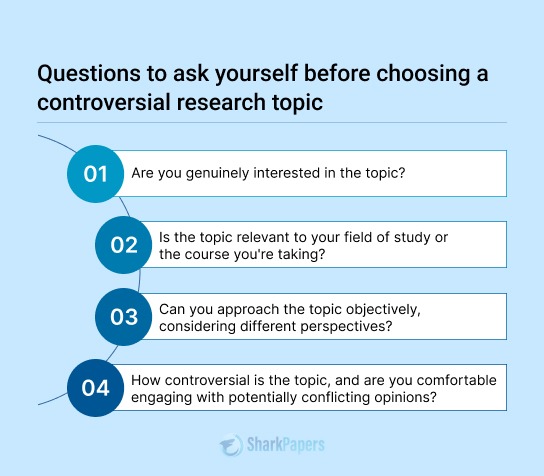
On this Page
Good Controversial Research Paper Topics for Students
Selecting a captivating research paper topic can make the research paper writing process more engaging and thought-provoking.
Here, we've curated a list of top research topics for students who are wondering what are some good controversial topics for a research paper.
Controversial Research Topics for Middle School
- Healthy School Lunches: Balancing Nutrition and Taste
- Should Students Have Homework on Weekends?
- Banning Junk Food in Schools: Pros and Cons
- Space Exploration: Is It Worth the Cost?
- The Importance of Environmental Conservation
- Community Service: Should It Be a Mandatory School Requirement?
- Is Censorship in Children's Literature Important?
- School Start Times: Are They Too Early?
- Should Students Be Allowed to Grade Their Teachers?
- Should Middle Schoolers Be Taught Financial Literacy?
Controversial Research Topics for High School Students
- Should High School Curriculum Include Mandatory Financial Literacy Courses?
- Exploring the Controversies Surrounding School Prayer
- The Influence of Violent VideoGames on Youth Behavior
- Should High School Start Times be Adjusted for Teenage Sleep Patterns?
- The Impact of Fast Food Advertising on Teenage Diets
- Debunking or Validating Popular Health Fads Among High School Students
- The Controversy Over Abstinence-only Education About Sex in High Schools
- The Role of Standardized Testing in College Admissions: Fair or Unfair?
- Should High School Students Have a Say in the Curriculum?
- The Impact of Global Warming Facts and Education on High School Students
Controversial Research Topics for College Students
- The Impact of Cancel Culture on Free Speech
- The Ethics of AI Surveillance in Educational Institutions
- Exploring Cultural Appropriation in College Events
- Debunking or Validating Conspiracy Theories in College Curriculum
- The Intersection of Gender Identity and Campus Policies
- Examining the Controversies Surrounding College Admissions Testing
- Privacy Concerns in Online Learning Platforms for College Courses
- Evaluating the Impact of Social Media Influencers on College Students
- Legalizing Recreational Drugs: Implications for College Communities
- Analyzing the Influence of the Electoral College on College Debates and Discussions
Controversial Research Topics for University
- The Intersection of Technology and Privacy in the Digital Age
- The Impact of Universal Basic Income on Labor Markets and Society
- Debunking Pseudoscience: Challenges and Strategies
- The Role of Blockchain Technology in Reshaping Industries
- The Future of Work: Automation, AI, and the Changing Landscape of Employment
- Neuroethics: Ethical Considerations in Brain-Computer Interface Technologies
- Augmented Reality in Healthcare: Enhancing Patient Care or Ethical Concerns?
- Crisis Communication in the Age of Social Media: Challenges and Opportunities
- The Ethics of Using AI in Criminal Justice: Bias, Accountability, and Transparency
- Social Media Influencers and Digital Advertising Ethics

Paper Due? Why Suffer? That's our Job!
Controversial Research Topics for Master’s
- Implications of Synthetic Biology and Biohacking
- Quantum Internet: Privacy and Security Challenges
- Ethics of Autonomous Weapons and AI in Warfare
- Impact of Deepfake Technology on Media and Society
- The Intersection of Technology and Mental Health: Risks and Benefits
- Space Tourism: Ethical and Environmental Implications
- The Ethics of Data Brokers and Information Marketplaces
- Quantum Cryptography: Securing Communication in the Quantum Era
- The Future of Intellectual Property in the Age of AI and Robotics
- The Digital Divide: Addressing Inequities in Access to Technology
Controversial Research Topics for Ph.D.
- Digital Surveillance and Civil Liberties: A Comparative Analysis
- Ownership and Privacy of Genetic Data in the Genomic Era
- Legal and Ethical Aspects of Extraterrestrial Resource Utilization
- Ethics of Artificial General Intelligence (AGI) Development and Deployment
- Regulatory Challenges of Decentralized Finance (DeFi)
- Algorithmic Trading, High-Frequency Trading, and Market Manipulation
- Big Tech's Influence on Global Politics and Governance
- Transhumanism and the Evolution of Post-Human Society
- The Intersection of Robotics and Human Rights: Ethical Considerations in Autonomous Systems
- Neurotechnology and the Possibility of Mind Reading: Ethical Implications
Common Controversial Research Paper Topics
- The Ethics of Genetic Editing: Balancing Innovation and Morality
- Climate Change: Addressing Skepticism and Urgency for Affirmative Action
- The Legality and Ethics of Euthanasia in Modern Society
- Concealed Handguns: Balancing Second Amendment and Civil Rights
- The Controversy Surrounding Biofuels
- Legalization of Recreational Drugs: Weighing the Risks and Benefits
- The Impact of Immigration Policies on Society and the Economy
- Nuclear Energy vs. Renewable Energy: Striving for a Sustainable Future
- Censorship in Media: Protecting Society or Limiting Freedom of Expression?
- The Death Penalty: Examining Morality and Effectiveness in Criminal Justice
Easy Controversial Research Paper Topics
- Should Schools Adopt Year-Round Bilingual Education?
- The Impact of Social Media Dependency on Personal Relationships
- Fast Food Consumption: Pros and Cons
- The Effectiveness of Capital Punishment as a Deterrent to Crime
- The Influence of Reality TV on Youth Behavior
- Should Animal Testing be Banned?
- The Impact of Video Games Violence on Academic Performance
- Marijuana Legalization and its Ethical Aspects
- Should Smoking in Public be Illegal?
- The Impact of Cell Phones on Face-to-Face Communication
Interesting Controversial Topics
- The Philosophy of Time Travel: Possibilities and Paradoxes
- Human Colonization of Mars: Ethical and Practical Considerations
- Cryptids and the Paranormal: Scientific Exploration or Pseudoscience?
- The Mandela Effect: Collective Memory or Alternate Realities?
- Existence of Parallel Universes: Exploring Multiverse Theories
- Plant Consciousness: Do Plants Have Feelings and Awareness?
- The Mystery of Dark Matter and Dark Energy
- Dream Interpretation: Psychology or Pseudoscience?
- Astrology and Personality Traits: Cosmic Influences on Atheism?
- The Hollow Earth Theory: Myth or Scientific Possibility?
Captivating Controversial Research Topics
- Mind-Reading Technology and Privacy Paradox
- Designer Babies: Crafting the Perfect Human
- Parallel Universes: Theoretical Marvel or Scientific Reality?
- Crypto-Currencies and the Future of Money Laundering
- Artificial Consciousness: From Code to Sentience
- Psychedelics in Psychiatry: Breaking the Taboo
- Deepfake Dilemmas: The Ethics of Synthetic Media
- Algorithmic Bias: Unmasking the Hidden Prejudice in Code
- Conscious AI in the Workplace: Colleague or Competitor?
- Rejuvenation Biotechnology: Extending Human Lifespan
Psychology Controversial Research Paper Topics
Here are some important controversial topics in psychology for research paper writing:
- The Morality of Using Placebos in Psychological Treatment
- The Ethics of Conducting Psychological Experiments on Animals
- Is Video Game Addiction a Real Mental Health Concern?
- The Influence of Parenting Styles on Child Development
- The Role of Genetics in Determining Intelligence
- Is Electroconvulsive Therapy (ECT) an Ethical Treatment for Depression?
- The Psychology of Procrastination: Causes and Solutions
- The Influence of Gender Stereotypes on Mental Health
- The Relationship Between Sleep Deprivation and Cognitive Functioning
- The Psychology Behind Conspiracy Theories: Understanding Beliefs and Behavior
Controversial Medical Topics For A Research Paper
- The Ethics of Human Cloning
- Physician-Assisted Suicide: Legal and Ethical Perspectives
- Gene Editing and CRISPR Technology: Ethical Implications
- The Legalization of Recreational Drugs for Medicinal Purposes
- Organ Transplant Allocation: Fairness and Equality
- Genetic Testing for Disease Predisposition: Privacy and Consent
- Stem Cell Research: Promises and Ethical Concerns
- Would Universal Healthcare Improve Healthcare Access?
- Pharmaceutical Industry Influence on Medical Practices
- Abortion: Medical, Ethical, and Legal Considerations
Simple Controversial Topics in History for Research Paper
- The Debate Over Reparations for Historical Injustices
- The Controversies Surrounding Columbus Day
- The Impact of Colonialism on Indigenous Peoples
- Historical Revisionism in Holocaust Denial
- The Legacy and Controversies of Historical Figures
- The Decision to Drop Atomic Bombs on Hiroshima and Nagasaki
- Historical Perspectives on Immigration Policies and Debates
- The Armenian Genocide: Recognition and Denial
- The Legacy and Controversies of the Vietnam War
- The Ethics of Archaeological Discoveries and Cultural Heritage Preservation
Tough Essay Due? Hire Tough Writers!
Unique Controversial Topics
- Universal Basic Income (UBI): Economic Panacea or Social Pitfall?
- Alternative Medicine vs. Conventional Medicine
- Urban Vertical Farming: Feeding Cities of the Future or Just a Pipe Dream?
- E-Waste Crisis: The Dark Side of Technological Advancement
- Water Scarcity and Corporate Control: Bottling Profits or Human Rights?
- Challenges of 5G Technology: Innovation or Health Concerns?
- Eradicating Infectious Diseases: Ethical Dilemmas in Gene Drives
- The Ethics of Behavioral Advertising: Personalized Marketing or Invasive Manipulation?
- Robot Rights: Navigating the Ethical Landscape of AI Personhood
- The Future of Nuclear Energy: Sustainable Solution or Perpetuating Risks
Other than this range of controversial topics, here are some non-controversial topics too:
Non Controversial Research Paper Topics
- The History of Public Libraries: Evolution and Impact on Communities
- Effects of Music on Stress and Anxiety Levels
- Benefits of Green Spaces in Urban Environments
- The Role of Vitamin D in Human Health
- History of Vaccinations and Their Impact on Public Health
- The Science of Sleep: Understanding Sleep Patterns and Disorders
- Positive Effects of Mindfulness Meditation on Mental Health
- The Impact of Reading on Cognitive Development in Children
- Advancements in Water Purification Technologies
- The History of Astronomy: Contributions and Discoveries
How to Choose a Controversial Research Paper Topic?
Choosing a controversial research paper topic requires careful consideration and a strategic approach to ensure the relevance and impact of your work.
Here are key steps to guide you in selecting a provocative and engaging topic for your research:
- Identify Your Interests: Start by considering your personal interests and passions. A controversial topic is more compelling when it aligns with your genuine curiosity. Explore subjects that you are willing to investigate thoroughly.
- Review Current Debates: Reading reputable news sources, scholarly articles, and opinion pieces will help you identify topics generating controversy and public discourse.
- Evaluate Academic Relevance: Ensure that your chosen topic has academic merit. It should be relevant to your field of study and contribute meaningfully to existing knowledge.
- Check Research Feasibility: Assess the feasibility of conducting research on your chosen topic. Ensure that there are accessible resources, data, and literature available for a comprehensive analysis.
- Consider Ethical Implications: Controversial topics may involve sensitive issues. Strive to approach the topic with empathy, respect for diverse opinions, and a commitment to presenting a balanced perspective.
- Stay Open to Adaptations: The dynamic nature of controversial topics may require adjustments to ensure the relevancy and significance of your findings. That’s why it is important to remain open to adapting your approach.
To sum up, looking into controversial topics lets us dig into complicated problems, have conversations, and question our existing knowledge. These interesting subjects grab people's attention and add to the broader perspectives of research.
This blog is your ultimate guide for controversial research paper topic selection. But if you feel like you need help with your topic or even research paper, reach our professional paper writing service online !
At SharkPapers.com, we have the expertise and experience to help you with research paper writing. We also provide freebies along with 24/7 customer support!
Visit our website and learn more about hiring research paper writing help !

Marketing, Literature
Donna writes on a broad range of topics, but she is mostly passionate about social issues, current events, and human-interest stories. She has received high praise for her writing from both colleagues and readers alike. Donna is known in her field for creating content that is not only professional but also captivating.
Was This Blog Helpful?
Keep reading.
- Learning How to Write a Research Paper: Step-by-Step Guide
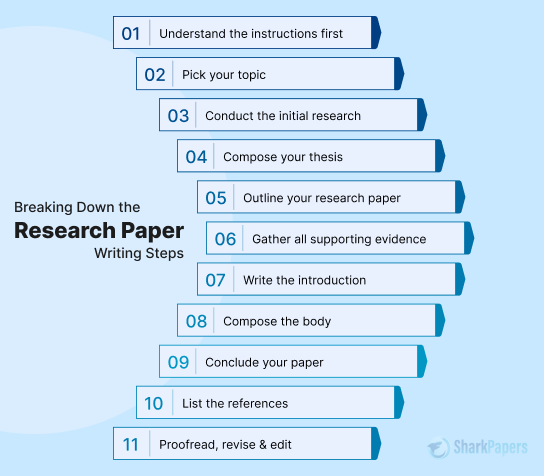
- Best 300+ Ideas For Research Paper Topics in 2024

- A Complete Guide to Help You Write a Research Proposal

- The Definitive Guide on How to Start a Research Paper
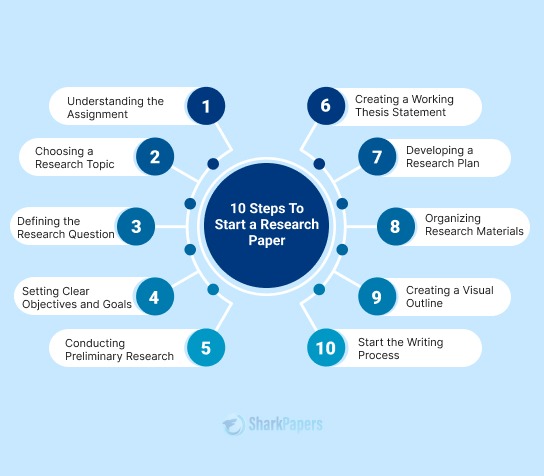
- How To Write An Introduction For A Research Paper - A Complete Guide
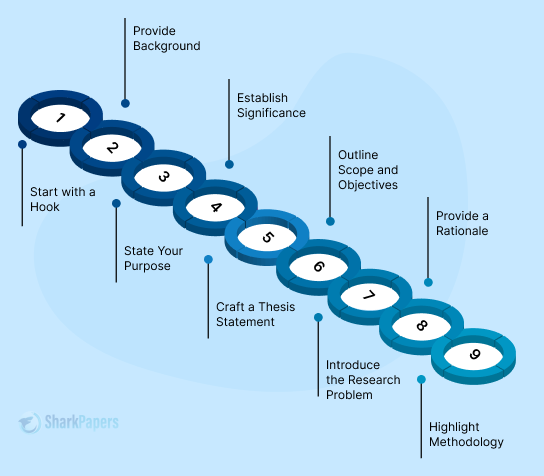
- Learn How To Write An Abstract For A Research Paper with Examples and Tips

- How to Write a Literature Review for a Research Paper | A Complete Guide
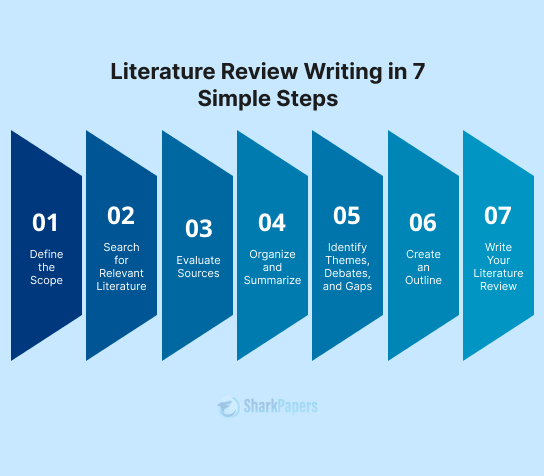
- How To Write The Methods Section of A Research Paper
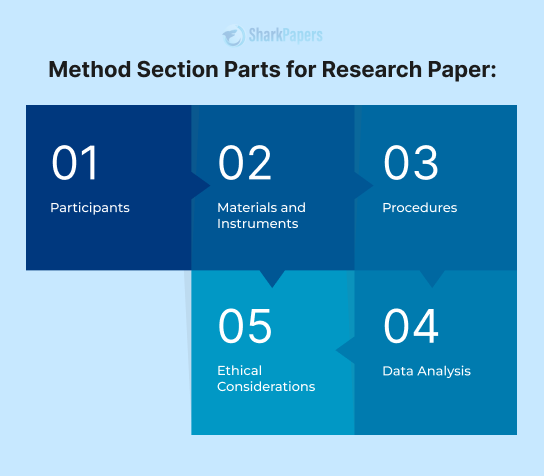
- How to Write a Research Paper Thesis: A Detailed Guide

- How to Write a Research Paper Title That Stands Out

- A Detailed Guide on How To Write a Conclusion for a Research Paper
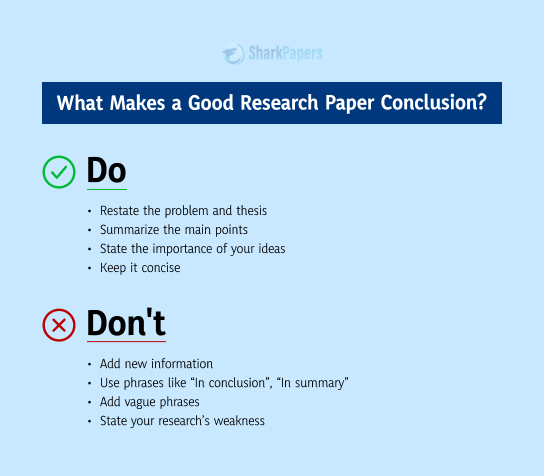
- How To Write The Results Section of A Research Paper | Steps & Tips
- How to Write a Problem Statement for a Research Paper: An Easy Guide
- How to Find Credible Sources for a Research Paper
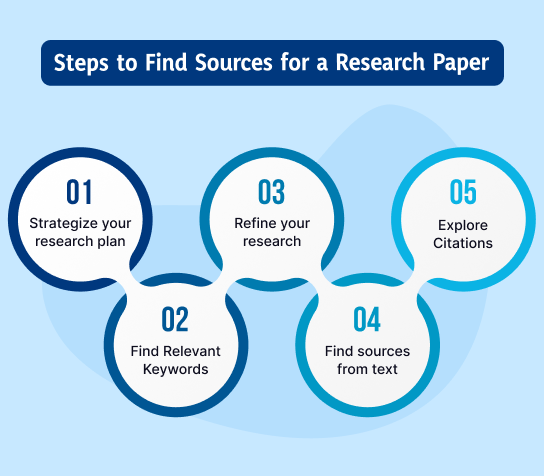
- A Detailed Guide: How to Write a Discussion for a Research Paper
)
- How To Write A Hypothesis In A Research Paper - A Simple Guide
- Learn How To Cite A Research Paper in Different Formats: The Basics

- The Ultimate List of Ethical Research Paper Topics in 2024
- How to Edit Research Papers With Precision: A Detailed Guide
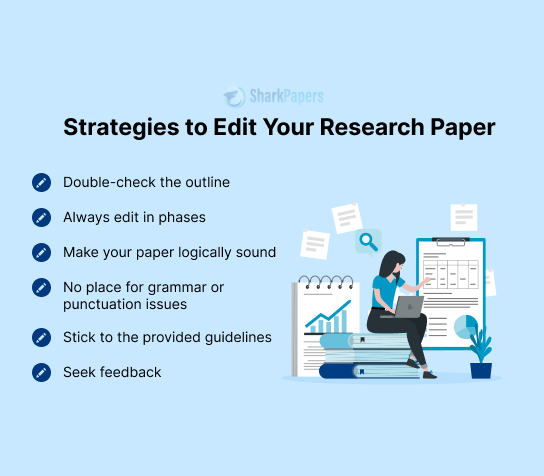
- A Comprehensive List of Argumentative Research Paper Topics
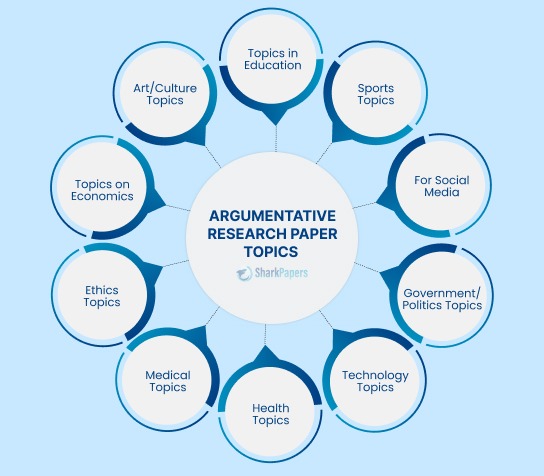
- A Detailed List of Amazing Art Research Paper Topics
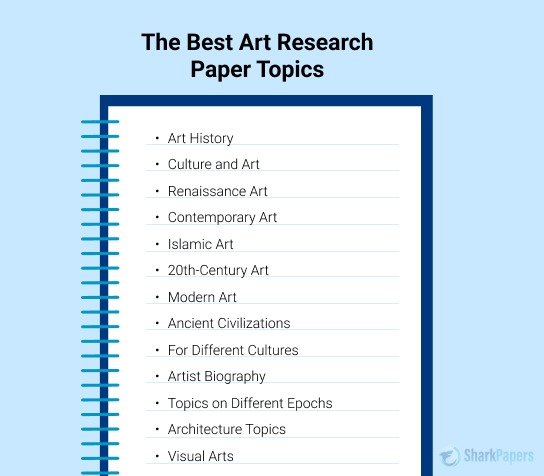
- Diverse Biology Research Paper Topics for Students: A Comprehensive List
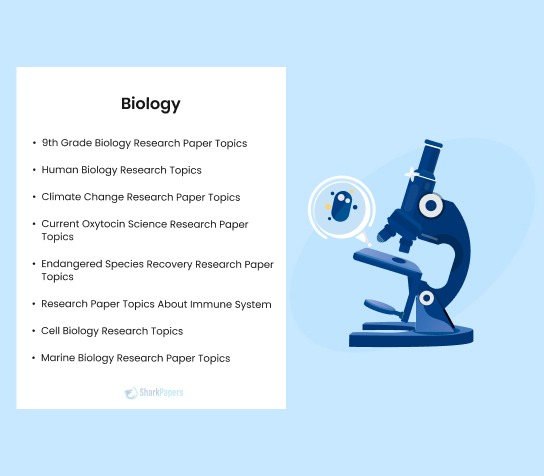
- 230 Interesting and Unique History Research Paper Topics

- 190 Best Business Research Paper Topics
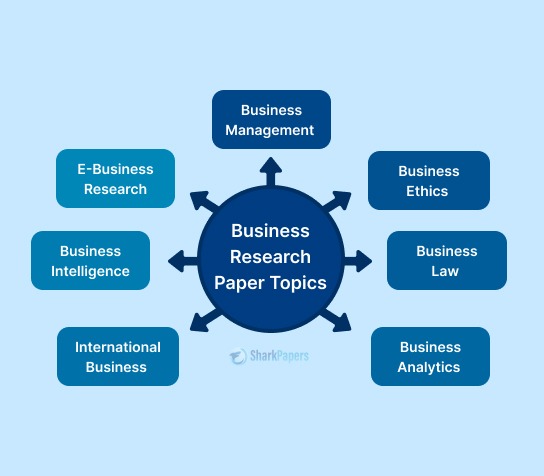
- 200+ Engaging and Novel Literature Research Paper Topics
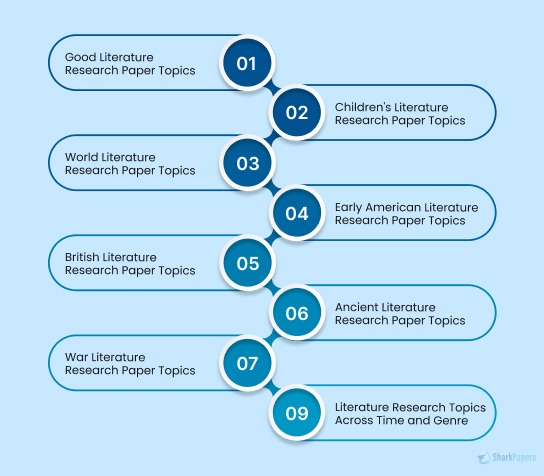
- A Guide on How to Write a Social Science Research Paper
- Sociology Research Papers: Format, Outline, and Topics

- Understanding the Basics of Biology Research Papers
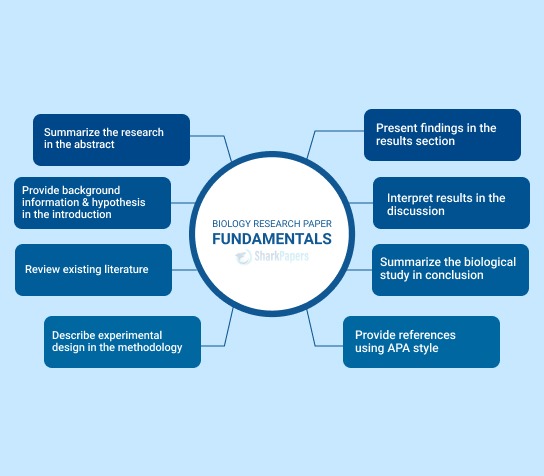
- How to Write a Psychology Research Paper: Guide with Easy Steps
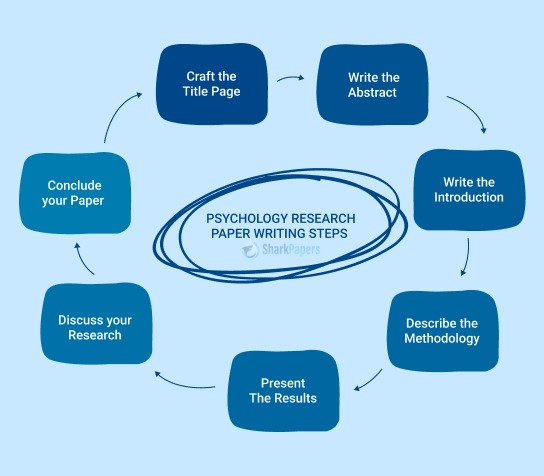
- Exploring the Different Types of Research Papers: A Guide
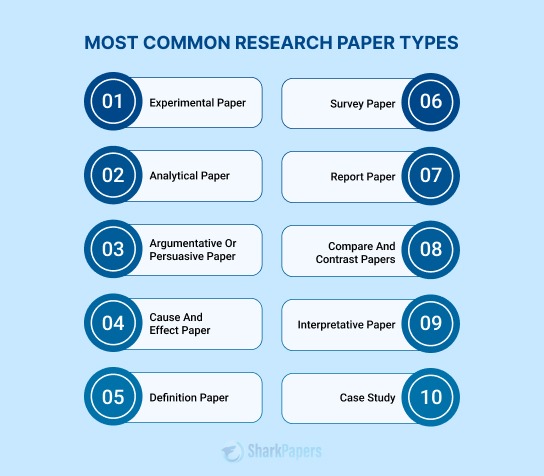
- Scientific Research Paper: Types, Formats, Structure & Writing Process

- Argumentative Research Paper | A Step-by-Step Guide

- Analytical Research Papers: A Detailed Walkthrough

- Experimental Research Paper Explained Comprehensively

- An In-Depth Look at Psychology Research Paper Examples

- 15+ Research Paper Examples for Different Types and Formats

- Free Argumentative Research Paper Examples

- Refine Your Literary Skills with Literature Research Paper Examples

- Get Inspired by 10+ Biology Research Paper Examples

- A Comprehensive Guide to History Research Paper Examples

- An Extensive List of Business Research Paper Examples

- 10+ Best APA Research Paper Examples for Effective Writing

- 10+ Expertly Crafted MLA Research Paper Examples

- Explore 8+ Chicago Research Paper Examples for Academic Excellence

- 15+ Examples of Abstracts for Research Papers

- Exploring IEEE Research Paper Examples: A Practical Guide

- Exploring Research Paper Thesis Examples: A Beginner's Guide

- 10 Free Research Paper Proposal Examples
-12114.jpg)
- A Look at 10 Interesting Art Research Paper Examples

- Survey Research Papers: Types, Format, Writing & Examples

- A Closer Look Into Research Paper Format: APA, MLA, Chicago & IEEE

- APA Research Paper Format 7th Edition: Guide with Examples

- MLA Research Paper Format Made Easy: Step-by-Step Guide

- Formatting Research Paper Title Page in APA, MLA & Chicago

- Crafting the Perfect Research Paper Outline | Steps & Examples

- A Detailed Guide to Chicago Research Paper Format

- An Easy Guide to IEEE Research Paper Format

- 12+ Practical Research Paper Outline Examples for Structuring Your Thoughts

- Engaging Psychology Research Paper Topics for Your Next Project

People Also Read
- how to write an abstract
- opinion essay
- extemporaneous speech
- literary analysis essay
- how to start a research paper
Burdened With Assignments?

Advertisement
© 2024 - All rights reserved
2000+ SATISFIED STUDENTS
95% Satisfaction RATE
30 Days Money Back GUARANTEE
95% Success RATE
Privacy Policy | Terms & Conditions | Contact Us
© 2021 SharkPapers.com(Powered By sharkpapers.com). All rights reserved.
© 2022 Sharkpapers.com. All rights reserved.
LOGIN TO YOUR ACCOUNT
SIGN UP TO YOUR ACCOUNT
- Your phone no.
- Confirm Password
- I have read Privacy Policy and agree to the Terms and Conditions .
FORGOT PASSWORD
- SEND PASSWORD
Exploring Controversial Issues in Nursing: Key Topics and Examples

This article was written in collaboration with Christine T. and ChatGPT, our little helper developed by OpenAI.

Nursing is dynamic and ever-evolving, often dealing with complex and controversial issues. As nursing students, it is crucial to understand and engage with these topics to contribute to the ongoing dialogue within the healthcare community. In this article, we will explore some of the most significant controversial topics in nursing, providing examples and discussing their implications for nursing practice.
Ethical Dilemmas in Nursing
Ethical principles in nursing and their implications in controversial issues.
Understanding ethical dilemmas is crucial for nursing students as they often encounter situations where moral decisions must be made. Familiarizing oneself with the American Nurses Association’s Code of Ethics can provide guidance in these situations. Some of the most controversial ethical dilemmas in nursing include:
1. End-of-Life Care and Decision-Making
Nurses often play a vital role in end-of-life care, supporting patients and their families through decision-making. This can involve addressing issues like withdrawing life-sustaining treatment, palliative care , and do-not-resuscitate orders.
Topic Examples to Explore:
- The role of nurses in end-of-life care Decision-making
- Advance care planning and nursing responsibilities
- The ethics of withholding or withdrawing life-sustaining treatment
- Do-not-resuscitate (DNR) orders: nursing perspectives and ethical considerations
- Palliative sedation: a controversial end-of-life care option
- End-of-life care in intensive care units: ethical dilemmas
- Ethical issues and disciplinary actions in ross medical pharmacy fraud case
- Communication strategies for discussing end-of-life care with patients and families
- The role of spirituality in end-of-life care decision-making
- Navigating cultural differences in end-of-life care preferences
- The role of advanced directives in patient autonomy
- The ethical implications of physician-assisted suicide
- Balancing family wishes with patient preferences
- The nurse’s role in facilitating end-of-life conversations
- Legal implications of withholding or withdrawing treatment
- The impact of healthcare policies on end-of-life care decisions
- The role of hospice and palliative care in end-of-life decision-making
- The ethics of artificial nutrition and hydration in end-of-life care
- Legal and ethical implications of physician-assisted suicide and nursing
- Decision-making capacity assessment in end-of-life care
- The role of surrogate decision-makers in end-of-life care
- Family-centered decision-making in end-of-life care
- Ethical considerations in end-of-life care for patients with dementia
- The role of advance directives in end-of-life care decision-making
- Compassionate extubation: nursing considerations in end-of-life care
- Addressing moral distress in end-of-life care decision-making for nurses
Medical Studies Overwhelming?
Delegate Your Nursing Papers to the Pros!
Get 15% Discount
+ Plagiarism Report for FREE
2. Medical Futility and Resource Allocation
Nurses may face situations where they must decide whether to continue providing care that may be futile or shift resources to patients with a higher likelihood of recovery.
- Defining medical futility in nursing practice
- The role of nurses in addressing medical futility
- Ethical considerations in medical futility decision-making
- The impact of medical futility on healthcare resource allocation
- Navigating patient autonomy and medical futility in nursing care
- Medical futility in end-of-life care: ethical dilemmas
- Strategies for addressing medical futility in clinical practice
- Defining medical futility in the modern healthcare landscape
- The role of ethics committees in determining treatment decisions
- Balancing patient autonomy with evidence-based practice
- Cost implications and the question of rationing care
- The nurse’s role in advocating for patient needs vs. system constraints
- Balancing patient needs and resource allocation in nursing care
- The role of evidence-based practice in addressing medical futility
- Communication strategies for discussing medical futility with patients and families
- The impact of healthcare policies on medical futility and resource allocation
- Legal implications of medical futility in nursing practice
- Addressing moral distress in nursing when facing medical futility
- Ethical considerations in resource allocation for intensive care units
- The role of cost-effectiveness analysis in healthcare resource allocation
- Prioritizing patient care in situations of limited resources
- Medical futility and the nurse’s responsibility to advocate for patients
- Balancing patient-centered care and medical futility in nursing practice
- The impact of cultural differences on medical futility and resource allocation
- Strategies for promoting fair and ethical resource allocation in healthcare settings
3. Informed Consent and Patient Autonomy
Ensuring patients understand the risks and benefits of their treatment options can be challenging, particularly when dealing with vulnerable populations or language barriers.
- The importance of informed consent in nursing practice
- Strategies for enhancing patient autonomy in healthcare settings
- Ethical considerations in obtaining informed consent
- The role of nurse-patient communication in informed consent
- Balancing patient autonomy and healthcare professional expertise
- Addressing cultural and linguistic barriers to informed consent
- Legal implications of informed consent in nursing practice
- Informed consent in pediatric nursing: ethical challenges
- The impact of health literacy on informed consent and patient autonomy
- The ethical implications of informed consent in emergency situations
- Balancing patient autonomy with clinical decision-making
- Cultural considerations in the informed consent process
- The role of family members in the informed consent process
- Legal implications of informed consent in pediatric cases
- Informed consent and shared decision-making in healthcare
- Patient autonomy in end-of-life care decision-making
- Ethical considerations in obtaining informed consent for research participation
- The role of nursing education in promoting informed consent and patient autonomy
- Strategies for supporting informed consent in vulnerable populations
- Informed consent in telemedicine: challenges and best practices
- The impact of technology on informed consent and patient autonomy
- Informed consent in mental health nursing: ethical dilemmas
- Informed consent in emergency nursing: balancing urgency and patient rights
- The role of family and caregivers in informed consent and patient autonomy
- Addressing moral distress in nursing when facing informed consent challenges
4. Medical Errors and Disclosure
Nurses must navigate the complex issue of admitting and addressing medical errors, balancing transparency with potential legal ramifications.
- The ethical obligation to disclose medical errors
- Strategies for preventing medical errors in nursing practice
- The impact of medical errors on patient trust and satisfaction
- Addressing the emotional aftermath of medical errors for nurses
- The role of nursing leadership in promoting a culture of transparency
- Balancing patient safety and provider accountability in medical error disclosure
- The impact of patient-centered care on medical error disclosure
- Addressing the fear of litigation in medical error disclosure
- Medical errors and disclosure in pediatric nursing
- The role of technology in preventing and disclosing medical errors
- The impact of a transparent disclosure process on patient trust
- Ethical implications of non-disclosure of medical errors
- Balancing institutional interests with patient rights
- The role of nurses in the disclosure process
- Legal protections for healthcare professionals disclosing errors
- Best practices for disclosing medical errors to patients and families
- Strategies for managing the legal implications of medical error disclosure
- The role of nursing education in promoting a culture of transparency and accountability
- Medical error disclosure and its impact on nursing professionalism
- The role of patient advocacy in medical error disclosure
- Nursing ethics and the disclosure of near-miss incidents
- The impact of medical error disclosure on nurse-patient relationships
- Medical error disclosure in mental health nursing
- Strategies for addressing systemic factors contributing to medical errors
- The role of interdisciplinary collaboration in preventing and addressing medical errors
Scope of Practice and Nursing Autonomy
For nursing students, understanding the scope of practice is essential. Each state has its regulations, and students should be aware of their responsibilities and limitations. Joining professional nursing organizations can provide resources and clarity on this topic. As the nursing profession evolves, debates surrounding the scope of practice and nursing autonomy have intensified. Key topics in this area include:
1. Nurse Practitioner Practice and Regulations
As nurse practitioners (NPs) take on more responsibilities, debates about the scope of their practice and regulatory oversight continue.
- Comparing nurse practitioner scope of practice across different states and countries
- The impact of full practice authority for nurse practitioners on patient care outcomes
- Addressing barriers to nurse practitioner practice: policy recommendations and advocacy efforts
- The role of nurse practitioners in rural and underserved areas
- Collaboration between nurse practitioners and physicians: challenges and best practices
- Nurse practitioner-led clinics: benefits, challenges, and future directions
- Prescriptive authority for nurse practitioners: controversies and perspectives
- The integral role of nurses in healthcare systems: the importance of education and experience
- The impact of nurse practitioner practice on healthcare costs and access to care
- The role of nurse practitioners in managing chronic conditions and promoting preventive care
- The evolution of nurse practitioner education: from certificate programs to Doctor of Nursing Practice degrees
- Evaluating the quality of care provided by nurse practitioners: a systematic review of the literature
- The role of nurse practitioners in addressing the opioid crisis
- Nurse practitioners in primary care: a solution to the physician shortage?
- Telehealth and nurse practitioner practice: opportunities and challenges
- The influence of reimbursement policies on nurse practitioner practice and healthcare delivery
- Nurse practitioner-led medical homes: a model for patient-centered care
- The role of nurse practitioners in addressing health disparities and improving population health
- Strategies for improving nurse practitioner workforce diversity and cultural competence
- The impact of nurse practitioner-led transitional care programs on hospital readmissions
- The future of nurse practitioner practice: emerging roles and opportunities
2. Delegation of Tasks to Unlicensed Personnel
Nurses must determine when and how to delegate tasks to unlicensed staff, balancing the need for efficiency with patient safety concerns.
- The ethical considerations of delegating nursing tasks to unlicensed personnel
- Balancing patient safety and workload management in task delegation
- The role of nursing leadership in promoting appropriate task delegation
- Strategies for effective communication and collaboration in task delegation
- Addressing the legal implications of delegating tasks to unlicensed personnel
- Best practices for training and supervising unlicensed personnel in nursing tasks
- The impact of delegation on nursing job satisfaction and burnout
- Delegation of tasks in pediatric nursing: ethical and practical considerations
- The role of nursing education in promoting effective delegation skills
- Delegation in home health nursing: challenges and best practices
- The impact of delegation on patient outcomes and quality of care
- Addressing cultural and linguistic barriers in the delegation of tasks to unlicensed personnel
- The role of technology in facilitating effective delegation of tasks
- Strategies for managing the risks associated with delegating tasks to unlicensed personnel
- Delegation of tasks in emergency nursing: balancing urgency and patient safety
- The impact of interdisciplinary collaboration on the delegation of tasks to unlicensed personnel
- Delegation in mental health nursing: ethical and practical considerations
- The role of nurse autonomy and decision-making in the delegation of tasks
- Addressing moral distress in nursing when delegating tasks to unlicensed personnel
- Delegation of tasks in long-term care settings: challenges and best practices
3. Prescriptive Authority for Advanced Practice Nurses
The debate over whether advanced practice nurses should have full prescriptive authority remains ongoing.
- The benefits and challenges of prescriptive authority for advanced practice nurses
- Addressing the scope of practice and legal considerations in prescriptive authority
- The impact of prescriptive authority on nurse practitioner autonomy and job satisfaction
- Strategies for promoting safe and effective prescribing practices among advanced practice nurses
- The role of nursing education in preparing advanced practice nurses for prescriptive authority
- Addressing the potential for overprescribing and medication errors in prescriptive authority
- The impact of prescriptive authority on access to healthcare services and patient outcomes
- Collaborative practice agreements and prescriptive authority for advanced practice nurses
- The role of nurse practitioners in addressing the opioid crisis through prescriptive authority
- Prescriptive authority in pediatric advanced practice nursing: ethical and practical considerations
- Strategies for managing the legal implications of prescriptive authority for advanced practice nurses
- The role of technology in supporting safe and effective prescribing practices among advanced practice nurses
- Addressing the potential for conflict and collaboration with physicians in prescriptive authority
- The impact of prescriptive authority on advanced practice nursing professionalism
- The role of patient advocacy in prescriptive authority for advanced practice nurses
- Strategies for addressing implicit bias and disparities in prescribing practices
- The role of interdisciplinary collaboration in promoting safe and effective prescribing
- Prescriptive authority in mental health advanced practice nursing: ethical and practical considerations
- The impact of prescriptive authority on patient satisfaction and trust in advanced practice nursing care
- Addressing the challenges of prescribing controlled substances as an advanced practice nurse
4. Collaboration Between Nurses and Physicians
As the roles of nurses and physicians continue to evolve, finding ways to collaborate effectively and enhance patient care is essential.
- The benefits and challenges of nurse-physician collaboration in patient care
- Strategies for promoting effective communication and teamwork between nurses and physicians
- The role of nursing leadership in fostering a collaborative healthcare environment
- Addressing the impact of power dynamics and professional boundaries on nurse-physician collaboration
- Best practices for interdisciplinary collaboration in patient care planning and decision-making
- The impact of nurse-physician collaboration on patient outcomes and satisfaction
- Addressing cultural and linguistic barriers in nurse-physician collaboration
- The role of nursing education in preparing nurses for effective collaboration with physicians
- Strategies for managing conflict and promoting mutual respect in nurse-physician relationships
- The impact of technology on nurse-physician collaboration and care coordination
- Nurse-physician collaboration in pediatric care: ethical and practical considerations
- The role of nurse practitioners in fostering collaborative relationships with physicians
- The impact of nurse-physician collaboration on nursing job satisfaction and burnout
- Strategies for promoting nurse-physician collaboration in diverse healthcare settings
- The role of patient advocacy and shared decision-making in nurse-physician collaboration
- Addressing the impact of implicit bias and health disparities on nurse-physician collaboration
- The role of interprofessional education in promoting effective nurse-physician collaboration
- Nurse-physician collaboration in mental health care: ethical and practical considerations
- The impact of nurse-physician collaboration on healthcare costs and resource utilization
- Strategies for promoting nurse-physician collaboration in the era of value-based healthcare
Cultural Competency and Diversity in Nursing
With the increasing diversity in patient populations, nursing students must be equipped with cultural competency skills. This involves understanding various cultural backgrounds and providing care that respects individual beliefs and practices. Key topics in this area include:
1. Addressing Health Disparities Among Minority Populations
Nurses must work to recognize and address the unique healthcare needs of diverse patient populations.
- The role of nursing in identifying and addressing health disparities among minority populations
- Strategies for promoting culturally sensitive care and communication with diverse patient populations
- The impact of nursing education on preparing nurses to address health disparities
- Addressing the role of implicit bias and discrimination in perpetuating health disparities
- The role of community health nursing in addressing health disparities among minority populations
- Strategies for promoting health literacy and patient empowerment among diverse patient populations
- The impact of nursing advocacy and policy on addressing health disparities
- Addressing barriers to healthcare access and utilization among minority populations
- Strategies for promoting health equity and social justice in nursing practice
- The role of interdisciplinary collaboration in addressing health disparities among minority populations
- The impact of technology and telehealth on addressing health disparities
- Strategies for promoting health promotion and disease prevention among diverse patient populations
- The role of nursing research in identifying and addressing health disparities among minority populations
- Addressing the impact of environmental and social determinants of health on health disparities
- Strategies for promoting cultural humility and self-reflection in nursing practice
- The role of nursing leadership in promoting health equity and diversity within the profession
- Addressing the impact of language barriers and health literacy on health disparities among minority populations
- The role of nursing in promoting policy change and advocacy to address health disparities
- Strategies for engaging community stakeholders in addressing health disparities among minority populations
2. Culturally Sensitive Care for Diverse Patient Populations
Providing culturally sensitive care involves understanding and respecting patients’ beliefs, values, and customs from different cultural backgrounds.
- The importance of culturally sensitive care in nursing practice
- Strategies for promoting cultural competence and humility in nursing care
- The role of nursing education in preparing nurses to provide culturally sensitive care
- Addressing language barriers and communication challenges in culturally sensitive nursing care
- Best practices for integrating patient cultural beliefs and practices into nursing care plans
- The impact of culturally sensitive care on patient outcomes and satisfaction
- Strategies for addressing implicit bias and discrimination in nursing care
- The role of community health nursing in providing culturally sensitive care for diverse populations
- The impact of nursing advocacy and policy on promoting culturally sensitive care
- Addressing the role of family and community in culturally sensitive nursing care
- The role of interdisciplinary collaboration in providing culturally sensitive care
- Strategies for promoting self-reflection and cultural humility in nursing practice
- The impact of technology and telehealth on providing culturally sensitive care
- The role of nursing research in identifying best practices for culturally sensitive care
- Addressing the impact of social determinants of health on culturally sensitive nursing care
- Strategies for engaging diverse patient populations in shared decision-making and care planning
- The role of nursing leadership in promoting a diverse and inclusive healthcare environment
- Addressing the challenges of providing culturally sensitive care in emergency settings
- The role of nursing in promoting policy change and advocacy for culturally sensitive care
3. Implicit Bias and its Impact on Patient Care
Recognizing and addressing implicit biases in nursing practice can help to improve patient outcomes and reduce health disparities.
- The role of implicit bias in nursing assessment and diagnosis
- The impact of implicit bias on nurse-patient communication and trust
- Addressing implicit bias in nursing education: strategies and best practices
- The effects of implicit bias on health disparities and patient outcomes
- The role of cultural competence training in reducing implicit bias among nurses
- Implicit bias and its impact on pain management in nursing practice
- The influence of implicit bias on the provision of mental health care by nurses
- The role of implicit bias in nursing leadership and decision-making
- Strategies for nurses to recognize and overcome their own implicit biases
- The impact of implicit bias on patient satisfaction and healthcare quality
- Implicit bias and its influence on nursing care for LGBTQ+ patients
- The role of implicit bias in the provision of care for patients with disabilities
- Addressing implicit bias in nursing research and evidence-based practice
- Implicit bias and its impact on healthcare access and utilization
- The role of implicit bias in the provision of culturally sensitive care
- Implicit bias and its influence on nursing care for older adults
- The impact of implicit bias on patient adherence to treatment plans
- Implicit bias in nursing care for patients with substance use disorders
- The influence of implicit bias on the provision of care for patients with limited English proficiency
- Strategies for healthcare organizations to address and reduce implicit bias among nursing staff
4. The Role of Nurses in Promoting an Inclusive Healthcare Environment
Nurses can create an inclusive environment and foster understanding and empathy among patients and colleagues.
- The importance of diversity and inclusion in the nursing workforce
- Strategies for promoting an inclusive healthcare environment for LGBTQ+ patients
- Addressing ageism in nursing care and promoting inclusive care for older adults
- The role of nursing education in fostering an inclusive healthcare environment
- The impact of inclusive healthcare environments on patient outcomes and satisfaction
- Best practices for promoting diversity and inclusion in nursing leadership
- Addressing the challenges of providing inclusive care for patients with disabilities
- The role of nursing advocacy and policy in promoting an inclusive healthcare environment
- Strategies for fostering cultural humility and self-awareness among nursing professionals
- The impact of interdisciplinary collaboration on promoting inclusive healthcare environments
- The role of nurse mentors in fostering inclusivity among nursing students and new graduates
- Promoting an inclusive healthcare environment through nursing research
- Addressing health disparities through inclusive nursing care
- The role of nursing leadership in promoting a diverse and inclusive healthcare workforce
- Addressing the challenges of providing inclusive care in emergency settings
- The role of nursing in promoting policy change and advocacy for inclusive healthcare environments
- Strategies for promoting health literacy and patient empowerment in an inclusive healthcare environment
- Fostering a culture of inclusivity and respect in the nursing workplace
Nursing Education and Workforce Issues
Nursing education and workforce issues have significant implications for the profession’s future. Key topics in this area include:
1. Competency-Based Education Versus Traditional Nursing Programs
The debate over the most effective approach to nursing education continues, with proponents arguing for their preferred method.
- The benefits and challenges of competency-based nursing education
- Comparing and contrasting competency-based and traditional nursing curricula
- The role of simulation and skills training in competency-based nursing education
- Nursing: a beautiful blend of art and science
- Strategies for integrating competency-based learning into traditional nursing programs
- The impact of competency-based education on nursing student outcomes and success
- Best practices for assessing nursing competencies in educational settings
- The role of nursing accreditation and regulatory bodies in promoting competency-based education
- Addressing the challenges of implementing competency-based nursing education in diverse settings
- The impact of technology and e-learning on competency-based nursing education
- Strategies for engaging nursing students in self-directed learning and skills development
- Usability, integration, and interoperability of healthcare technology
- The role of nursing faculty in promoting competency-based education and assessment
- Addressing the needs of diverse nursing student populations in competency-based education programs
- The role of interprofessional collaboration and teamwork in competency-based nursing education
- Strategies for promoting continuous professional development and lifelong learning in competency-based nursing education
- Transforming advanced nursing practice: embracing IOM recommendations and higher education
- The impact of competency-based education on nursing workforce preparedness and quality of care
- Addressing the challenges of evaluating competency-based nursing education programs
- The delicate dance: balancing art and science in the nursing profession
- The role of nursing leadership in promoting competency-based education and assessment
- Strategies for integrating evidence-based practice and research competencies into nursing education programs
- The impact of competency-based education on nursing education policy and advocacy
- Preparing nursing students for the transition to practice through competency-based education
2. The Nursing Shortage and its Impact on Patient Care
The ongoing nursing shortage has raised concerns about patient safety, quality of care, and the potential for nurse burnout.
- Exploring the root causes of the nursing shortage
- The impact of the nursing shortage on patient safety and quality of care
- Strategies for addressing the nursing shortage through workforce planning and policy
- The role of nursing education in addressing the nursing shortage
- The impact of the nursing shortage on nurse workload and job satisfaction
- Strategies for promoting nurse retention and reducing turnover in the face of the nursing shortage
- The role of nursing leadership in addressing the nursing shortage and its impact on patient care
- Addressing the challenges of providing care in rural and underserved areas during a nursing shortage
- The impact of the nursing shortage on interprofessional collaboration and teamwork
- The role of technology and telehealth in addressing the nursing shortage
- Strategies for promoting diversity and inclusion in the nursing workforce to address the nursing shortage
- The impact of the nursing shortage on healthcare costs and resource allocation
- The role of nursing advocacy and policy in addressing the nursing shortage
- Strategies for engaging nursing students and new graduates in addressing the nursing shortage
- The impact of the nursing shortage on nursing education and faculty workload
- Addressing the challenges of providing care in emergency and disaster situations during a nursing shortage
- The role of international recruitment and migration in addressing the nursing shortage
- Strategies for promoting nursing as a career choice to address the nursing shortage
- The impact of the nursing shortage on healthcare access and health disparities
- Addressing the nursing shortage through innovative models of care and nursing practice
3. The Role of Technology in Nursing Education
As technology advances, nursing educators must determine how best to integrate digital tools into their curricula to enhance learning outcomes.
- The benefits and challenges of incorporating technology into nursing education
- The role of simulation and virtual reality in nursing education
- Strategies for integrating technology into nursing curricula and learning experiences
- The impact of e-learning and online education on nursing student outcomes and success
- Best practices for using technology to enhance nursing education and assessment
- The role of nursing accreditation and regulatory bodies in promoting the use of technology in nursing education
- Addressing the digital divide and promoting digital literacy among nursing students
- Importance and application of patient education technology in healthcare
- The impact of technology on nursing faculty roles and responsibilities
- Strategies for engaging nursing students in technology-enhanced learning and skills development
- The role of interprofessional collaboration and teamwork in technology-enhanced nursing education
- Strategies for promoting continuous professional development and lifelong learning through technology in nursing education
- Digital healthcare and organizational learning: enhancing patient care through technology and knowledge management
- Addressing the challenges of evaluating technology-enhanced nursing education programs
- The role of nursing leadership in promoting the use of technology in nursing education and assessment
- Strategies for integrating evidence-based practice and research competencies into technology-enhanced nursing education programs
- Global health learning in nursing and health care disparities
- The impact of technology on nursing education policy and advocacy
- Preparing nursing students for the transition to practice in a technology-driven healthcare environment
- The role of technology in promoting diversity and inclusion in nursing education
- Addressing the challenges of implementing technology-enhanced nursing education in diverse settings
- The impact of technology on nursing workforce preparedness and quality of care
- The future of technology in nursing education: trends, innovations, and opportunities
4. Workplace Violence and Nurse Safety
Nurses are increasingly experiencing workplace violence, prompting discussions on how to ensure their safety and well-being in the clinical setting.
- The prevalence and impact of workplace violence on nurses and patient care
- Strategies for preventing and managing workplace violence in nursing settings
- The role of nursing education in preparing nurses to address workplace violence and promote safety
- The impact of workplace violence on nurse well-being and job satisfaction
- Best practices for promoting a safe and healthy work environment for nurses
- The role of nursing leadership in addressing workplace violence and promoting nurse safety
- Combating workplace violence in nursing: the impact of policies, legislation, and organizational culture
- Addressing the challenges of providing care in high-risk settings where workplace violence may occur
- The role of nursing advocacy and policy in addressing workplace violence and promoting nurse safety
- Strategies for engaging nursing students and new graduates in promoting workplace safety and preventing violence
- The impact of workplace violence on interprofessional collaboration and teamwork
- Addressing the needs of diverse nursing populations in the face of workplace violence and safety concerns
- Workplace violence in healthcare: causes, regulations, and prevention strategies
- The role of interdisciplinary collaboration in promoting workplace safety and preventing violence
- Strategies for promoting self-care and resilience among nurses experiencing workplace violence
- Addressing the challenges of evaluating workplace violence prevention and intervention programs in nursing settings
- The role of nursing research in understanding and addressing workplace violence and nurse safety
- The impact of workplace violence on healthcare costs and resource allocation
- Strategies for promoting a culture of safety and respect in nursing workplaces
- The role of technology in preventing and addressing workplace violence in nursing settings
- The impact of workplace violence on nursing education and faculty workload
- The future of workplace violence prevention and nurse safety: innovations, trends, and opportunities
Future Challenges and Opportunities in Nursing
The nursing profession faces numerous challenges and opportunities as it continues to evolve. Key topics in this area include:
1. The Impact of Telehealth on Nursing Practice
As telehealth becomes more prevalent, nurses must adapt their practice to provide care remotely, ensuring that patient needs are met, and continuity of care is maintained.
- The benefits and challenges of incorporating telehealth into nursing practice
- The role of nursing education in preparing nurses for telehealth practice
- Strategies for integrating telehealth into nursing practice and care delivery models
- The impact of telehealth on nursing roles and scope of practice
- Best practices for using telehealth to enhance nursing care and patient outcomes
- The role of nursing accreditation and regulatory bodies in promoting the use of telehealth in nursing practice
- Addressing the digital divide and promoting digital literacy among nursing professionals
- The impact of telehealth on interprofessional collaboration and teamwork in nursing care
- Strategies for promoting continuous professional development and lifelong learning through telehealth in nursing practice
- Addressing the challenges of evaluating telehealth interventions and programs in nursing practice
- The role of nursing leadership in promoting the use of telehealth in nursing practice and care delivery
- Strategies for integrating evidence-based practice and research competencies into telehealth nursing practice
- The impact of telehealth on nursing practice policy and advocacy
- Preparing nursing students for the transition to practice in a telehealth-driven healthcare environment
- The role of telehealth in promoting diversity and inclusion in nursing practice
- Addressing the challenges of implementing telehealth nursing practice in diverse settings
- The impact of telehealth on healthcare access and health disparities
- The role of telehealth in addressing the nursing shortage and promoting workforce efficiency
- The future of telehealth in nursing practice: trends, innovations, and opportunities
- The role of telehealth in addressing global health issues and promoting equitable care delivery
2. The Role of Nurses in Addressing Climate Change and Environmental Health
Nurses can play a crucial role in addressing the health impacts of climate change, advocating for environmental health policies, and promoting sustainable practices.
- The impact of climate change on nursing practice and patient care
- Strategies for incorporating environmental health and sustainability into nursing education and practice
- The role of nursing advocacy and policy in addressing climate change and promoting environmental health
- The impact of climate change on nursing roles and scope of practice
- Best practices for promoting environmental sustainability in nursing practice and care delivery
- The role of nursing leadership in addressing climate change and promoting environmental health
- Addressing the challenges of providing care in the context of climate change and environmental health concerns
- Mental health and gender inequality
- The role of interdisciplinary collaboration in addressing climate change and promoting environmental health in nursing practice
- Strategies for promoting continuous professional development and lifelong learning related to climate change and environmental health in nursing practice
- The impact of climate change and environmental health on nursing education and curricula
- Addressing the needs of diverse nursing populations in the face of climate change and environmental health concerns
- The role of nursing research in understanding and addressing climate change and environmental health
- Strategies for integrating evidence-based practice and research competencies into nursing practice focused on climate change and environmental health
- The impact of climate change on healthcare access and health disparities
- The role of technology in addressing climate change and promoting environmental health in nursing practice
- The impact of climate change on nursing workforce preparedness and quality of care
- Addressing the challenges of evaluating nursing interventions and programs focused on climate change and environmental health
- The future of nursing practice in the context of climate change and environmental health: trends, innovations, and opportunities
- The role of nurses in promoting community resilience and adaptation to climate change
- The role of nurses in promoting global health equity and environmental justice in the context of climate change
3. The Integration of Genomics and Precision Medicine in Nursing Practice
As genomic and precision medicine advances, nurses must stay informed and incorporate these innovations into their practice, tailoring care to patients’ genetic profiles.
- The benefits and challenges of incorporating genomics and precision medicine into nursing practice
- The role of nursing education in preparing nurses for genomics and precision medicine practice
- Strategies for integrating genomics and precision medicine into nursing practice and care delivery models
- The impact of genomics and precision medicine on nursing roles and scope of practice
- Best practices for using genomics and precision medicine to enhance nursing care and patient outcomes
- The role of nursing accreditation and regulatory bodies in promoting the use of genomics and precision medicine in nursing practice
- Addressing the ethical considerations and challenges of genomics and precision medicine in nursing practice
- The impact of genomics and precision medicine on interprofessional collaboration and teamwork in nursing care
- Strategies for promoting continuous professional development and lifelong learning related to genomics and precision medicine in nursing practice
- The impact of genomics and precision medicine on nursing education and curricula
- Addressing the needs of diverse nursing populations in the context of genomics and precision medicine practice
- The role of nursing research in understanding and addressing the integration of genomics and precision medicine in nursing practice
- Strategies for integrating evidence-based practice and research competencies into nursing practice focused on genomics and precision medicine
- The impact of genomics and precision medicine on healthcare access and health disparities
- The role of technology in addressing the integration of genomics and precision medicine in nursing practice
- The impact of genomics and precision medicine on nursing workforce preparedness and quality of care
- Addressing the challenges of evaluating nursing interventions and programs focused on genomics and precision medicine
- The future of nursing practice in the context of genomics and precision medicine: trends, innovations, and opportunities
- The role of nurses in promoting personalized and patient-centered care through genomics and precision medicine
- The role of nurses in promoting global health equity and ethical considerations in the context of genomics and precision medicine
4. Interprofessional Collaboration and Teamwork
Effective collaboration among healthcare professionals is vital to providing high-quality patient care as healthcare becomes more complex.
- The benefits and challenges of interprofessional collaboration and teamwork in nursing practice
- The role of nursing education in preparing nurses for interprofessional collaboration and teamwork
- Strategies for promoting interprofessional collaboration and teamwork in nursing practice and care delivery models
- The impact of interprofessional collaboration and teamwork on nursing roles and the scope of practice
- Best practices for fostering effective interprofessional collaboration and teamwork in nursing care and patient outcomes
- The role of nursing accreditation and regulatory bodies in promoting interprofessional collaboration and teamwork in nursing practice
- Addressing the challenges of interprofessional collaboration and teamwork in diverse nursing practice settings
- The impact of interprofessional collaboration and teamwork on healthcare costs and resource allocation
- Strategies for promoting continuous professional development and lifelong learning related to interprofessional collaboration and teamwork in nursing practice
- The impact of interprofessional collaboration and teamwork on nursing education and curricula
- Addressing the needs of diverse nursing populations in the context of interprofessional collaboration and teamwork
- The role of nursing research in understanding and addressing the integration of interprofessional collaboration and teamwork in nursing practice
- Strategies for integrating evidence-based practice and research competencies into nursing practice focused on interprofessional collaboration and teamwork
- The impact of interprofessional collaboration and teamwork on healthcare access and health disparities
- The role of technology in promoting interprofessional collaboration and teamwork in nursing practice
- The impact of interprofessional collaboration and teamwork on nursing workforce preparedness and quality of care
- Addressing the challenges of evaluating nursing interventions and programs focused on interprofessional collaboration and teamwork
- The future of interprofessional collaboration and teamwork in nursing practice: trends, innovations, and opportunities
- The role of nurses in promoting a culture of collaboration and respect within interdisciplinary healthcare teams
- The role of nurses in fostering interprofessional education and collaborative practice across healthcare professions
Controversial topics in nursing provide nursing students with valuable opportunities to engage in critical thinking and develop their understanding of the many complexities nurses face in their profession. By exploring these topics and considering their implications, nursing students can contribute to the ongoing dialogue within the healthcare community and better prepare themselves for the challenges they will encounter in their careers.
📎 Related Articles
1. Mental Health Nursing Research Topics: Inspiring Ideas for Students 2. Top Nursing Argumentative Essay Topics: Engage in Thought-Provoking Debates 3. Top Nursing Topics for Discussion: Engaging Conversations for Healthcare Professionals 4. Key EBP Nursing Topics: Enhancing Patient Results through Evidence-Based Practice 5. Top Nursing Research Topics for Students and Professionals 6. Nursing Debate Topics: The Importance of Discussing and Debating Nursing Issues 7. Pediatric Nursing Research Topics for Students: A Comprehensive Guide
Table of content
Crafted with Care:
Nursing Essays!
Precision, Passion, & Professionalism in Every Page.
12 Controversial Medical Topics for Research Paper
Published on november 16, 2017 at 8:39 am by nusreta beranac in lists.
Coming up with an idea for your next research paper does not have to be difficult, just take a look at 12 controversial medical topics for research paper that we prepared to inspire you.
Writing a research paper of any kind can be quite a task. Let alone writing a paper on a controversial topic that you know little about and that causes disagreements. Before we start suggesting controversial medical research topics you can consider for your next research paper, let us first define what controversial topic is. A topic that raises opposing views from different parties is considered to be controversial. This represents quite a challenge as most students have difficulties just finding such a topic, not to mention taking an individual stand on the matter and having something interesting to say about it. It can be hard to find good suggestions, which is what we did in an article on 25 Controversial Debate Topics for College Students , we wrote earlier. Many students will find it to be extremely difficult to come up with well-supported arguments to present in their paper and this can be an issue even with more simple medical research topics for college students.

eldar nurkovic/Shutterstock.com
However, there are many controversial medical topics that spark discussion and opposing views that you may find interesting. This would make it easier for you to take an individual stand and come up with great arguments to present in your research paper. We are aware that the majority of students find it easier to write on an already given topic by their professors, but coming up with a topic yourself can be a challenge you can and will enjoy. Once you find a topic that you like, you can do your research and think of valid arguments to use in your paper. Controversial research topics can be very useful as they may spark interest in related matters. Luckily for us, there is no shortage of such topics as many issues raise discussion in the medical research community. If you try to google anything about abortion, prenatal illnesses, euthanasia, and many other debatable things, you will come across plenty of discussions that even the brightest of minds cannot agree on. Entire organizations are built on these beliefs and people everywhere are fighting to prove a point.
Health research topics that cause some opposing views, like the ones we will mention in our list, are exciting, even though at first you may think that it’s too difficult to write about them. As your work progresses, you will find yourself more into it, and you will be able to enjoy it. Speaking of health topics, we wrote about best debate topics related to health and fitness earlier so you can check it out if you need suggestions. Also, for more interesting health research topics for college students, check out the Health Data Managment’s article .
To help you do a great job on your next research paper, we set out to find some great examples of controversial medical related research topics you can consider for your next assignment. To find them, we visited Medical Daily , Questia , Shaw Davis Writes , and a few others . We singled out 12 controversial medical topics for research paper which have been raising dust for a few years now and ranked them in no particular order.
So, when you’re ready, click Next.

Slideshow List XFinance Is circumcision good? Is euthanasia a crime? gluten facts and myths Health research topics Is unsafe sex dangerous? is circumcision necessary is organ donation ethical Is animal testing ethical? baby immunization schedule Should abortion be illegal? prescription drug ads on tv Controversial medical topics animal experimentation debate plastic surgery debate topics euthanasia considered homicide Is gluten-free diet healthier? benefits of being uncircumcised consequences of unprotected sex male circumcision pros and cons medical related research topics gender selection legal countries why gluten free diet weight loss controversial medical treatments prescription drug ads controversy should abortion be illegal debate Should plastic surgery be banned? cosmetic surgery debate arguments controversial medical topics 2017 controversial medical topics 2016 consequences of not using protection Controversial medical research topics ethics of animal testing pros and cons cosmetic surgery should be banned essay difference between euthanasia and killing health research topics for college students Is organ donation a choice or an obligation? Medical research topics for college students Should vaccines be administered to children? Should marijuana be used for medicinal purposes? 12 controversial medical topics for research paper 11 Best Debate Topics Related to Health and Fitness 25 controversial debate topics for college students Should gender information during pregnancy be banned? Should prescription drugs be advertised to consumers? reasons why marijuanas should be legal for medical use why marijuanas should be legal for medical reasons essay consequences of being sexually active without using protection Show more... Show less

IMAGES
VIDEO
COMMENTS
Should euthanasia be illegal? 13. Should abortion be legal? (Browse this and other challenging topics surrounding abortion with recommended sources on each topic) 14. Should surrogate pregnancy be used on-demand or only for health reasons? 15. Is womb transplantation a good alternative to surrogate pregnancy? 16.
Constant heated debates challenge our fundamental understanding of wellness. That is why health debate topics for high school are extremely beneficial critical thinking tools. They teach you to make the right decisions and consider your physical and mental well-being. Below you will find a list of more than 380 controversial medical topics.
As a result, research papers on controversial topics have the potential to reach a larger audience, generate public discourse, and raise awareness about important issues that might otherwise be overlooked. 5. Fosters Resilience and Intellectual Courage.
22 Paramedic Research Paper Topics. 23 Surgery Research Topics. 24 Radiology Research Paper Topics. 25 Anatomy and Physiology Research Paper Topics. 26 Healthcare Management Research Paper Topics. 27 Medical Ethics Research Paper Topics. 28 Conclusion. In such a complex and broad field as medicine, writing an original and compelling research ...
120+ Controversial Health Care Essay Topics. Dr. Wilson MN. August 3, 2022. Essay Topics and Ideas, Samples. If you are a nursing student looking for medical argumentative essay topics, or health essay topics in general, you understand how crucial it is to choose controversial subjects you can explore in-depth.
The top 10 most-read medical ethics articles in 2021. Dec 29, 2021 . 3 MIN READ. By. Kevin B. O'Reilly , Senior News Editor. Print Page. Each month, the AMA Journal of Ethics® ( @JournalofEthics) gathers insights from physicians and other experts to explore issues in medical ethics that are highly relevant to doctors in practice and the future ...
Controversial Topics. Clinical topics commonly considered controversial include abortion and other aspects of reproductive health; end-of-life and palliative care matters, including physician ...
General Medical Topics. 1. This house believes that there is a clear link between poverty and health. [This debate is regarding the factors between income and the healthcare people can receive. For countries like the UK, where healthcare is largely free at the point of use, there are many studies that indicate that healthcare is still linked to ...
Controversial Research Topics. Controversial Research Topics are as follows: The impact of genetically modified organisms on human health. The use of embryonic stem cells for medical research. The effectiveness of abstinence-only sex education. The effects of violent video games on children and adolescents. The link between intelligence and race.
Here, we'll explore a variety of healthcare-related research ideas and topic thought-starters across a range of healthcare fields, including allopathic and alternative medicine, dentistry, physical therapy, optometry, pharmacology and public health. NB - This is just the start….
We would like to show you a description here but the site won't allow us.
Exploring Controversial Issues in Nursing: Key Topics and Examples. 7. Pediatric Nursing Research Topics for Students: A Comprehensive Guide. Explore various nursing argumentative essay topics to inspire thought-provoking discussions and help you develop strong critical thinking and writing skills.
It gets tricky to develop an ideal debate topic for your nursing paper. A nursing debate paper has an introduction, body, and conclusion. It includes a thesis statement in the introduction and expounds on the main points in the body, mainly through a persuasive or argumentative approach. When it is a requirement that you select a debatable ...
Health essay topics for high school students. It's not easy to decide what you want to write about when it comes to choosing a single topic out of the wide variety of health essay topics. You can write about healthy lifestyle, rehabilitation after traumas, childcare, common or rare diseases, global advances in health and medicine ...
Common Controversial Research Paper Topics. The Ethics of Genetic Editing: Balancing Innovation and Morality. Climate Change: Addressing Skepticism and Urgency for Affirmative Action. The Legality and Ethics of Euthanasia in Modern Society. Concealed Handguns: Balancing Second Amendment and Civil Rights.
Look at the "Picking a Topic" tab on this guide for help brainstorming your topic. Also, our Research Process guide can help you throughout your research process. ... accurate discussions of over 250 controversial topics in the news along with chronologies, illustrations, maps, tables, sidebars, contact info, and bibliographies, including ...
Mental Health Nursing Research Topics: Inspiring Ideas for Students 2. Top Nursing Argumentative Essay Topics: Engage in Thought-Provoking Debates 3. Top Nursing Topics for Discussion: Engaging Conversations for Healthcare Professionals 4. Key EBP Nursing Topics: Enhancing Patient Results through Evidence-Based Practice 5.
Need to write an argumentative essay? Preparing for an upcoming debate? ProCon.org has over 100 topics complete with pro and con arguments, quotes and statistics from experts, historical information, and other pertinent research. Abortion - Should abortion be legal? Alternative Energy - Can alternative energy effectively replace fossil fuels?
Critical Analysis Research Paper Topics in Mental Health. For psychology students looking for effective research paper topics mental health offers many arenas for critical analysis. Here are some good topics to pick from -. Relevance of Freud in modern day psychiatry. Abortion care - the ethics and the procedures to facilitate emotional ...
To find them, we visited Medical Daily, Questia, Shaw Davis Writes, and a few others. We singled out 12 controversial medical topics for research paper which have been raising dust for a few years ...
Heath psychology topics can look at a range of issues related to health, illness, and healthcare. It may include such things as eating disorders, weight management, diet, exercise, stress coping, women's health, and more. Health psychology, also known as medical psychology or behavioral medicine, focuses on how biology, psychology, behavior ...
Tip #4: Avoid Hyperbole, Stereotypes, and Clichés. These are common issues that crop up in argumentative writing that ultimately weaken your position. Hyperbole happens when you exaggerate. When you use hyperbole, you risk misrepresenting the issue at hand—which is an argument killer.
In a new review paper, Carlo Maley and Arizona State University colleagues describe cell-in-cell phenomena in which one cell engulfs and sometimes consumes another. The study shows that cases of this behavior, including cell cannibalism, are widespread across the tree of life. The findings challenge the common perception that cell-in-cell events are largely restricted to cancer cells.
113 Great Research Paper Topics. One of the hardest parts of writing a research paper can be just finding a good topic to write about. Fortunately we've done the hard work for you and have compiled a list of 113 interesting research paper topics. They've been organized into ten categories and cover a wide range of subjects so you can easily ...